Benjamin Hopkins:
[Good] to see you all this morning, having joined us for what looks to be an exciting and really intellectually robust day. My name is Benjamin Hopkins. I’m the director of the Sigur Center for Asian Studies here at the Elliott School. For those of you that don’t know, the Sigur Center is the university center for research and teaching on Asia. In addition to being the director of the Sigur Center, I’m also the co-director of the East Asian National Resource Center, which is a title six funded center, which actually we just won last year, largely based off the strength of our robust East Asian program, which has for long been supported by our friends at TECRO. And it’s with that in mind today that we’re looking to our first of a number of conferences this year. Today’s being on cross-strait relations under stress. We have an absolutely fantastic lineup for you today.
Benjamin Hopkins:
If you have not already grabbed a program which have all the speaker bios as well as the events, they are available over there. In addition to advertising what is about to begin for today, I’d also like to bring your attention that on December 11th, we will be holding our next Taiwan focus conference, which is going to be a preview of the upcoming elections for Taiwan. So we’re going to have a really interesting series. We’re going to have both the discussion before the elections and the follow up discussion and after the new year, once the elections take place. So for those of you that have been following, it’s a very interesting, political landscape these days in Taiwan and I think we’ll have a very interesting conversation for that round table. But let’s get back to the order of the day. And I think it goes without saying that it’s an interesting time for cross-strait relations. As I’ve already indicated, we have a fantastic lineup of panelists, academics and policy wonks to share their opinions and insights today. And with that I would like to introduce, the honorable Christine Hsueh, who is the deputy representative of the Taipei Economic and Cultural Representative Office here in Washington DC. It’s a great pleasure to have you here and please, why don’t you come up here and walk us off?
Christine M. Y. Hsueh:
Professor Hopkins, distinguished panelists, ladies and gentlemen, good morning. It is my great pleasure and honor to be with you this morning. I’d like to first thank Sigur Center once again for putting together an inspiring and stimulating event focusing on China’s Pressure Campaign and its implication for Taiwan and beyond. As many of you know, since the democratization movement of the 1980s, Taiwan has already gone through three rounds of transition power by direct elections.
Christine M. Y. Hsueh:
Next January, we are going to have another presidential election even with unavoidable outside intervention, I believe. It will once again attest to the value of democracy, which people of Taiwan cherish dearly regardless of their political affiliation. Taiwan’s robust democracy is not just a success story. It is a constant reminder to the world that democracy can thrive in Chinese culture. More importantly, given China’s growing shock power, Taiwan has also become the first line of defense for democratic values in the Indo-Pacific region.
Christine M. Y. Hsueh:
Even though our government under the leadership of President Tsai Ing-wen, has tried our best to maintain the status quo across the Taiwan strait. China’s diplomatic offenses and military coercion toward Taiwan have just intensified day by day. Posing a serious challenge to regional peace and stability. Not only did China malignantly quash Taiwan’s international space whenever possible, they also lured away seven of our diplomatic allies in the past four years. In Xi Jinping’s January 2nd speech, he further tried to impose one country to systems modeled for Taiwan even after the model has been proved a failure in Hong Kong, and once again threatened to use force as an option for unification with Taiwan. In the face of all this increasing pressure on our freedom and democracy, President Tsai, in her national date address this year, calling empower people to stay united, resilient to defend our hard earned democracy.
Christine M. Y. Hsueh:
She also reaffirmed that Taiwan must fulfill its responsibility to the international community. But Taiwan will not act provocatively or irrationally. Rather we will work with likeminded countries to ensure that a peaceful and stable cross-strait status quo is not unilaterally altered. Therefore, people in Taiwan are greatly encouraged by vice president Pence address at Wilson Center event last week, which he indicates that United States stood by Taiwan in defense of her hark work democracy.
Christine M. Y. Hsueh:
And also his reiteration that America will always believe that Taiwan is embrace of democracy shows a better path for older Chinese people. So even the road ahead of us may not be smooth. We know we are not alone fighting for the good cost. With that in mind, I think you’ll agree with me that today’s discussion of the cross-strait relations are very timely and will have implication for more than the parties on both sides of Taiwan strait. Thank you again for having me, I look forward to learning from wisdom and the thoughts of our distinguished panelists and also wish today’s event a great success. Thank you.
Deepa Ollapally:
Thank you very much. Welcome to all of you again. It’s wonderful to see such a big turnout. And I also want to thank Minister Hsueh for setting the stage now for this panel so wonderfully that her remarks I think are a good indication of why we need to have this sort of a conference at this particular time. So with me today, we’re going to go right in, I’m not going to go too much into the introduction of the panelists that. None of them probably need an introduction to this audience, but they all deserve one. And let me just start by saying that, some of them here, two actually, have come in this morning. So I was holding my breath until they all arrived on time and we started with, the person who will begin us off looking at Chinese unilateralism and militarization to set a sort of looking at the defense and security, and military landscape that Taiwan faces.
Deepa Ollapally:
June Dreyer is a professor of political science at the University of Miami. She has made a heroic effort to get here from Miami this morning and she is turning right around and going back, because she managed to squeeze this in between two very important personal commitments that she’s got. She’s also the president of the American Association of Chinese Studies, which I just found out that wasn’t even on her long list of accomplishments. She has worked at the library of Congress.
Deepa Ollapally:
She’s been a advisor to the chief of Naval operations. And her most recent book, the 10th edition of a book that came out in 2018 called China’s Political System: Modernization and Tradition. In 2017, she received the university of Miami’s award as a distinguished research professor, which I think it speaks volumes for her continuing contributions. She also has a PhD from Harvard.
Deepa Ollapally:
Turning to the next time list on my left is Michael Mazza, who is a visiting fellow from the American Enterprise Institute. And he came in from New York right on time. So thank you, Mike. He is, he analyzes US defense policy in the Asia Pacific region, Chinese military modernization and he’s also a nonresident fellow at the Global Taiwan Institute and he has published widely in very well known journals such as foreign affairs and wall street and so forth. He was also recognized as a Foreign Policy Initiative future leader a few years ago. So keep your eye on him.
Deepa Ollapally:
And then finally, happy to introduce Bob Sutter who came all the way from Virginia. He is my colleague at GW. He has been here since 2011. He has taught around the DMV and Georgetown, Johns Hopkins, University of Virginia. He has published 21 books and hundreds of articles and he has been in the past. It worked also at Congressional Research Service and has been a national intelligence officer, and has a PhD as a [inaudible 00:10:43]. Well, let me just say that I think they are an expert group for the topics today. And I’m going to start with June and just go down the line and they’ll speak for about 15 minutes or so and then we’ll open it up for Q and A. So thank you very much. June.
June Teufel Dreyer:
No academic can speak for only 15 minutes.
Deepa Ollapally:
I said 15 knowing you’ll take 20, but go ahead.
June Teufel Dreyer:
Anyway, Deepa has already told you my topic and nobody who saw the photos of China’s 70th birthday parade, could doubt that there has been significant militarization in China. And I don’t want to bore you with a long list of weapons, but among the weapons that made their debut was the drones from 41, first time seen in public, and this is said to have a 9,400 mile radius, which means it could hit any place in the United States, which brought a lot of people up short. And then in the same parade was the DF 17, and this is a nuclear capable, a ballistic missile that is specifically designed to carry a hypersonic glide vehicle, which is very, very scary indeed.
June Teufel Dreyer:
And then according to the Stockholm Institute of Peace Research, kinda has the second largest military budget in the world, United States being first, and in the 215 birthday parade, there were, so-called Guam killer, the DF 26, and the DF 21, which is nicknamed the Carrier Killer. And you know whose carriers they have in mind. And you also know who has a submarine based on Guam. So that’s concerning. And a Singaporean analyst, Kotlin Ko, revealed a couple of weeks ago on the basis of some photos from CSIS, a think tank on this, what he called the start of the factory for aircraft carriers and surface shifts in the Asi River estuary.
June Teufel Dreyer:
So, on the basis of that, the IISS in London, and you’ve noticed, I’m trying to pick places here from different parts of the world, Stockholm and London and Singapore, suggested that the Chinese naval capability has entered a new phase. So point made, militarization. I was out at what was then Paycom in early 2011 and I said, “Is it true you folks, what I’ve been hearing, the Chinese military is becoming a lot more assertive in various international fora?”
June Teufel Dreyer:
And the answer I got from a two star admiral was, you better believe it. And he contrasted that with the previously much more diffident, quiet responses that you would get in the past. And I mention this on purpose because 2010 appears to me to be a real watershed year. And the reason is that people keep saying that this is Xi Jinping and I would argue that it isn’t Xi Jinping. I mean it is, but it started under Hu Jintao who is sometimes portrayed as this colorless guy. I know a eminent professor in a university in Shanghai, a Chinese who sneered Hu Jintao. This is a place where good ideas go to die and obviously this one didn’t die. And that fits in with a much more generally belligerent tone elsewhere. The ARF meeting in Hanoi July, 2010 where the Chinese foreign minister stomped out after Hillary Clinton suggested that the South China sea issues be settled amicably.
June Teufel Dreyer:
Not really a provocative statement from her point of view and also looking the Singaporean foreign minister straight in the eye and say, “You have to understand that some countries are big countries and some countries are small countries,” and Singapore of course is a small country. And he essentially said, “Suck it up and get used to it.” Only slightly more politely. And that was also about the time the Chinese were saying or not quite saying, if you parse the grammar that the South China sea, that nine dash line was a core interest. And again, if you parse the grammar, they haven’t quite said it, but they sure seem to be implying it. So, 2010, another, what do you call a piece of evidence from my theory here that it’s 2010, is the collision between the, Chinese fishing boat and the two Japanese coast guard vessels after which the Chinese said, “Okay, we’re now going to start patrolling this area.” And they did.
June Teufel Dreyer:
So again, it wasn’t 2012, no matter what you’ve read, it was 2010. And now, there has been a move, countermove ballet, which would be the wrong word for something so lethal. But, 2010 was also the year that DOD announced, it was around before, but 2010 was when DOD announced the air sea battle strategy. And this is the anti-access area denial strategy known as paralyze first and analyze later, annihilate later. And it was pretty obvious that that was China that we’re talking about. So that’s the United States countermove. And then shortly thereafter came Hillary Clinton’s articulation of the pivot to Asia, which has been echoed by Barack Obama and his address to the Australian parliament. And the Chinese say, “Okay, provocation, we need to make a countermove.”
June Teufel Dreyer:
And then you get the militarization of the islands. And we respond. We put Marines on a rotating basis in Darwin and they counter by leasing the port of Darwin for 99 years. And you see what I mean by move, countermove here. And the trouble is we don’t do very much to back up our presence. We announce a pivot, but we don’t do a heck of a lot about it. So this is building up, in other words, before Xi Jinping assumed power in 2012 and before Donald Trump was elected in 2016. So, neither one of them deserves the blame or the praise for starting this depending on your point of view.
June Teufel Dreyer:
Now this is followed by a number of unpleasant incidents between US ships and planes, and being shadowed and harassed by Chinese ships and planes with the usual thing in the press, does this mean going to war? And this is the US press. Is this worth going to war about? Which is taken by the Chinese side correctly, I think, as a sign that we would have cold feet about doing so. And there’s a lot of concern.
June Teufel Dreyer:
I know this from people among what was then Paycom now is Indupaycom that the political authorities were not telling the American people what was really going on. And a confirmation on that a couple of weeks ago, a DIA counter intelligence analyst was arrested and charged with leaking classified information on missiles to two journalists. In other words, he was not selling things to the Chinese, he was leaking the classified information on the Chinese missiles to journalists in the United States. Okay.
June Teufel Dreyer:
And the missiles in this case, and again, I have this if anybody’s interested, I can tell you what they were, but they are able to, their long range surface to air missiles that can target aircraft drones and cruise missiles within 160 nautical miles on three of the briefs that the Chinese have fortified. And according to CSIS’s Greg Polling, they’ve also appeared in satellite images of Woody Island, which is the center of China’s presence in the South China sea. And he says from there, you’re going to see them migrate to other ones, in other of these fortified islands. So that’s creeping aggression in the South China sea. And I noticed that Harry Harris, who was then had a Paycom testifying that the house, armed services committee, I believe it was, said, “Ladies and gentlemen, China’s intent is crystal clear. We ignore it at our peril.”
June Teufel Dreyer:
And Harris’s successors said something very similar. So that’s the South China sea. As I mentioned before, the East China sea appears to be more, one, less overtly confrontational, but kind of eating slowly away at Japan’s claimed sovereignty in the East China sea and Chinese fishermen have avoided the waters around the Senkaku Islands for about 10 years ago. Again, pre-dating Xi Jinping. And the Japanese have fortified, not the Senkakus, but the islands in the area. This has really been like pulling teeth without anesthetic because the people on the islands don’t want a military presence there, this is a Japanese military presence. And as we all know, Japan doesn’t have a military, it has a self defense force, but same difference. Okay. What about joint exercises with the United States?
June Teufel Dreyer:
These happen periodically, and it somewhat amuses me to see that these are all islands. The exercises are all geared at re taking the islands. Notice, not defending the islands, but re taking the islands. And there is method behind this because the United States has not pledged to defend those islands against creeping osmosis. It’s pledged to defend them against invasion. And what’s happening is not an invasion, it’s osmosis. So that again is a little bit scary. And I hear all these scenarios, what if China invaded blah, blah, blah. And I’m saying, this assumes a lack of an acumen on the Chinese, which we shouldn’t assume. They’re very smart. Why would they bother invading when the salami tactics are working so well? And possibly you guys will, we’ll take this up further because it seems to me that’s their strategy with regard to Taiwan as well.
June Teufel Dreyer:
Scary weapons, but that’s not their ultimate strategy. Now, it’s easy to say that United States could have done more, but think about it. First of all, acting unilaterally is going to elicit a chorus of unilateralism and warmongering and heaven knows squash. And second, the United States has never recognized anybody sovereignty over those contested islands. Okay?So perhaps all that we can do is what Ash Carter suggested, what four years ago now? Approximately 2016, to insist on flying and sailing wherever international law allows and not allow ourselves to be bullied by periodic confrontations with the Chinese Navy ships and airplanes. Okay, so that’s number one.
June Teufel Dreyer:
Option number two is join with allies. And I was born and brought up in Brooklyn and I know exactly what my fellow Brooklynites would say, which is something like oy vey. We had tried the quad, which was actually proposed by a Japanese prime minister, with India and Australia and Japan. But there’s a wonderful article a couple months ago by Kevin Rudd, the former, prime minister of Australia, in which he goes into great detail about the problems of the quad. And basically these can be summarized because Deepa’s is going to cut me off in about two minutes. Basically, this can be summarized very quickly in that all of these countries are democracy, that was a whole idea, an Alliance of democracies.
June Teufel Dreyer:
Democracies change leaders, and leaders change policy. So Abe, his first term as prime minister, he’s a pretty tough guy. And then pretty soon he gets replaced with Fukuda and Fukuda’s attitude is, “Let’s be really nice to the Chinese.” The same kind of thing happens in Australia. It also happened in India. Manmohan Singh is replaced by Modi who was somewhat tougher guy. After Abe, who? We’re not positive. Although he isn’t part of the quad, just think what happened with Duterte in the Philippines. I mean it’s practically, I guess it’s 170 degree turn around.
June Teufel Dreyer:
Option number four, and to my horror, I heard a lot about this in, for God’s sake, Newport at the United States Naval War College, and that is we’ve got to meet China halfway. And one of my mentors was the greatly respected James Lilley, James R. Lilley, the guy who ran the secret war in Laos and also was the ambassador to China.
June Teufel Dreyer:
I remember him thundering that if you try to meet them halfway, the Chinese will take this as a sign of weakness and they will push harder. There are the options and nobody has ever accused me of being an optimist. I will however close by saying that Xi Jinping has a lot of other problems besides Taiwan, the declining economy, the increasing pollution, the Tibet running sore, the Shin Jong issue on the border with India, and lots of other things.
June Teufel Dreyer:
I was amused to see Jin Run quoted yesterday, I believe it was, as saying, “China has the ability to destroy the United States, but it should avoid a hot war.” And then he goes on to say in this interview, “But it should also avoid a cold war and what each side needs is to be transparent.” Well, good luck with that. Now I turn it over to very capable next speaker.
Deepa Ollapally:
All right. Thanks for staying in. Time to set a good example for the rest of you. Let me now move to Michael Mazza, who’s going to extend June’s remarks and look at Chinese naval assertiveness and its effect on Taiwan.
June Teufel Dreyer:
Thank you.
Michael Mazza:
Thank you, Deepa. Thanks for the kind introduction. It’s an honor to be here on time, being on a panel with Dr. Dreyer and Dr. Sutter. I’ve been asked to address China’s regional assertiveness, and how that assertiveness affects Taiwan. In discussing China’s regional assertiveness, I’m going to break this up into two baskets. China’s assertiveness with respect to Taiwan, and China’s assertiveness with respect to everyone else. Can you hear me okay?
Michael Mazza:
We’ll start with Beijing’s approach to Taiwan. China has been engaged in a pressure campaign to squeeze the islands since Taiwan was elected in early 2016. That pressure campaign has included a number of facets, many of which had been aimed at constraining what we often call Taiwan’s international space, which I define as Taiwan’s ability to pursue robust engagement in both a bilateral and multilateral basis.
Michael Mazza:
Beijing has had some definite successes in this regard. For example, Beijing has kept Taiwan from sending delegates even as observers to a variety of international gatherings, including the World Health Assembly, the Interpol General Assembly, and the IDEO Assembly, despite being a full member of APEC. Taiwan’s president is not welcomed at the annual gatherings and she actually sent a nongovernmental envoy in her stead. Taiwan’s formal diplomatic ties has suffered as well. The last time Taiwan gained a new diplomatic ally, I believe, was 2007, St. Lucia, but it’s seen seven diplomatic allies sever their ties over the last six years. Taiwan has concluded a FTA with a non diplomatic partner since 2013, including agreements with New Zealand and Singapore.
Michael Mazza:
Beijing’s effort to symbolically erase Taiwan from the map, at least in the minds of global consumers, have proceeded at pace as well. PRC aviation authorities successfully applied pressure to nearly 40 international airlines, including the major American carriers, to force them to remove Taiwan from lists of countries where they fly. Now if one flies United, for example, you book travel to Taipei rather than to Taipei, Taiwan.
Michael Mazza:
Other examples. Zara and Medtronic had to apologize when PRC regulators noticed that their websites included Taiwan on lists of countries where they do business. GAP, the clothing retailer, a year or so ago was made to apologize and withdraw from store shelves a T-shirt featuring a map of China that didn’t include Taiwan and other disputed territories. Notably that T-shirt was not for sale in China, but in Canada. Even as China has sought to isolate Taiwan on the international stage, it has attempted to meddle in Taiwan’s internal politics as well as. The issue of Chinese interference in Taiwan’s democracy came to a head in the November, 2018 elections for a local mayor as county magistrates and township counsels. Although the exact extent of that interference is difficult to quantify, that it existed is not at all difficult to see.
Michael Mazza:
And while the margins of electoral victories for the Kuomintang, the KMT, last year suggested the interference was unlikely to have been decisive in many or most instances, the PRC’s efforts almost certainly boosted KMT candidates and eased their paths to victory, via disinformation campaigns, media warfare, local politicking, pass to illicit finance, the Chinese Communist Party has sought to weaken Tsai Ing-wen, boost the opposition KMT and more broadly undermined confidence in Taiwan’s democratic institutions.
Michael Mazza:
Chinese efforts to weaken Taiwanese society and to undermine its confidence in Taiwan’s political system have at times also been quite plain for all to see. In February of 2018 China’s Taiwan Affairs Office published the 31 measures promulgated with the aim of, and this is a quote from the TAO, “Sharing with our Taiwan compatriots development opportunities in the mainland to gradually provide equal treatment for university studies, entrepreneurship, employment and improve the living standards for Taiwanese compatriots on the mainland.”
Michael Mazza:
Put simply, these are incentives meant to attract Taiwanese students, businessmen, businesses to invest, study, work and make lives in the People’s Republic. To be sure that these measures, if they’re fully implemented, could benefit those folks from Taiwan who are living in the PRC, but I think the intent here is malicious as well and quite clearly so. China hopes to undermine support in Taiwan for independence or for the status quo over the long term. And while I think that that effort is likely to fail, measures like this could accelerate a potential brain drain of talent away from the Island.
Michael Mazza:
The pressure campaign has a security component as well. In what seems to be an already forgotten incident from January, 2018, china unilaterally announced new civilian flight paths over the Taiwan Strait in contravention of an earlier 2015 agreement. Those responsible for ensuring Taiwan’s security worry that PLA pilots and aircraft, to take advantage of these new groups, to practice approaching the Island under the guise of civilian air traffic. And of course there have been PLA military operations and exercises as well. The Liaoning, China’s sole aircraft carrier pronounced sole aircraft carrier, had stranded at the strait multiple times. It’s ventured into water east of Taiwan as well. PLA aircraft have frequently circumnavigated the Island, and this past spring two Chinese fighters crossed the medium line, breaking a longstanding tacit agreement.
Michael Mazza:
What is it they hope to achieve with this pressure campaign? Ideally it would like to see Tsai Ing-wen, not to mention the population at large, relent, accept the so-called 1992 consensus and embrace unification. Xi Jinping presumably knows that pigs don’t fly. Especially Chinese pigs are all sick and dying. Even if Tsai was susceptible to such pressure, the trends on identity and views towards independence and unification in Taiwan have proven themselves largely unaffected by changes in cross straight relations.
Michael Mazza:
Xi’s efforts to isolate Taiwan internationally and to gain global acceptance of China’s preferred one shining narrative I think are intended to reduce the potential for foreign interference in Beijing’s plans for the Island. The fewer governments that maintain diplomatic ties with Taiwan, the less foreign appreciation there is for Taiwan’s democracy, the less recognition of the objective reality of Taiwan’s independent existence. And the more that others adopt the view that cross trade ties are an internal Chinese affair, the less foreigners will care about, or be willing to aid the people of Taiwan in the face of Chinese assertiveness or aggression. Efforts to isolate Taiwan along with the mainland’s mounting military pressure on the Island likewise are meant to convince Taiwan’s people that ultimately resistance is futile.
Michael Mazza:
Beijing’s message to Taipei has been clear, “Whether from the sea or from the air, we can threaten you from all approaches.” In the past, the Western Pacific had in effect provided some strategic depth for Taiwan’s Navy at least, but China seeks to end that advantage. Chinese exercises around the Island have the additional benefit of putting added strain on Taiwan’s aging and tricking fighter inventory. And while it wears down China’s military, China hopes to normalize the presence of its own forces on the waters and in the skies around Taiwan. Establishing such a new norm will make strategic and operational surprise easier for Beijing, when they decide to use force.
Michael Mazza:
Finally Beijing hopes to turn Taiwan’s population against Tsai Ing-wen and the DPP. It has done this with economic leverage, with this disinformation campaign. So far it hasn’t seemed to work, but obviously last year was a bad year for Taiwan, and these things can be effective at times.
Michael Mazza:
Now for Chinese assertiveness outside of Taiwan, we’ve already heard quite a bit about the South China Sea and East China Sea. I’ll just touch on those briefly, but first, in addition to Chinese efforts to interfere in Taiwan’s domestic politics, China has done so elsewhere as well. Taiwan is not the only victim of CCP local warfare. Chinese efforts in Australia are fairly well known at this point, been in the news quite a bit, New Zealand as well. Others have been victimized across the region. China of course seeks for all countries to embrace its own one-China principle, and more broadly its local warfare efforts across the Indo-Pacific are intended to shape a region which is conducive to Chinese interests. Such a region is unlikely to be particularly conducive to Taiwan’s interests.
Michael Mazza:
As for Chinese assertiveness in the South China Sea, again, we’ve heard about the nature of that. It’s all quite troubling for Taiwan. Should China succeed in establishing control over a large swath of the South China sea, Taiwan would see its own plan stumbled upon, but perhaps more worrying Chinese control of the South China Sea might put China in position to more easily cut off sea-born trade to Taiwan and from Taiwan. It might make it easier for China to use another axis of approach to the Island in the event it decides to use force. It would make it easier for China, the Chinese Navy in particular, to more easily access the Western Pacific via the Bashi Channel and it could potentially establish a bastion for next-generation ballistic missile subs, armed with ICBM featuring a longer range than the current JO2s.
Michael Mazza:
Put very simply, Chinese control of the South China Sea would unsettle Taiwan security environment, complicating its own defense and America’s ability to come to its aid in the event of a crisis. The same goes for Chinese efforts to rest control of the Senkaku or Diaoyu Islands from Japan in the East China Sea. Again, Chinese control of the Senkakus would permit the PLA to pose a more complex threat to Taiwan, while complicating US and, or Japanese intervention in the event of a conflict.
Michael Mazza:
This all sounds quite ominous for Taiwan, a generally deteriorating security environment featuring high tensions, occasionally dangerous interactions at sea and in the air, PLA potentially gaining access to strategically significant geography, all while Taiwan is fending off threats at home and struggling to counter Chinese efforts to isolate it on the international stage.
Michael Mazza:
But I would argue the news is not all bad. Indeed there’s a case to be made that Chinese assertiveness has not only not successfully isolated Taiwan, but rather it opened the door to Taiwan’s deeper international engagement in some ways. Consider Taiwan’s relationship with its two most important unofficial diplomatic partners. US-Taiwan relations are perhaps the best that they have been in years, if not decades. The Trump administration now has a strong record of arms sales to Taiwan, at least as far, and has increasingly treated Taiwan as a more normal diplomatic partner. Importantly, the United States have sought to use the bilateral relationship as a platform to upstand Taiwan’s international space.
Michael Mazza:
Through the Global Cooperation and Training Framework, or GCTF, the United States and Taiwan have expanded Taiwan’s organizational and person to person ties and networks throughout the Asia Pacific. Japan and Sweden have now joined the US and Taiwan as formal cosponsors on some of the GCTF workshops. These decisions from Tokyo and Stockholm suggest that Taiwan is not as isolated as the PRC might like, or what the PRC might like Taiwan’s citizens to believe. Indeed the Taiwan-Japan relationship is quite healthy as well. President Tsai and prime minister Shindo Abe of Japan have engaged in direct communication, albeit it being Twitter.
Michael Mazza:
Tweeting certainly is no substitute for telephone conversations or in person summitry, but no other world leader, say, those of countries with which Taiwan has formal ties, no other world leader has been willing to communicate with president Tsai in that way, including the American president. In January of 2017, Japan’s unofficial ambassador to Taiwan described bilateral ties at their best. He did so at a ceremony to change the name of the semi-official organization that manages Japan’s relationship with Taiwan in Taipei, previously called The Interchange Association of Japan. It’s now known as the Japan-Taiwan Exchange Association.
Michael Mazza:
A few months later, the semi-official body in Taipei, Taiwan’s organization responsible for managing relations with Tokyo changed its name, from the Association of East Asian Relations to the Taiwan and Japan Relations Association. Again, a change made in consultation with Japan. Perhaps more importantly, Taiwan’s voters’ approval last November of a measure continuing the ban on food imports from Fukushima prefecture, and surrounding areas, didn’t set back bilateral ties quite in the way that many feared it would.
Michael Mazza:
Certainly the ban has been a nagging nuisance. But in the days just after the referendum vote, Taipei and Tokyo signed a new agreement and a foreign memo used designed to lower trade barriers and deepen economic relations. Japan hasn’t been alone in seeking to deepen economic ties with Taiwan. Earlier this year, it was reported that Taiwan and the EU remain interested in pursuing a bilateral investment agreement. Now, as far as I know, formal talks have not yet been launched, but earlier this month Taiwan and the UK held the 25th round of their near annual trade talks. With London eager to secure markets for a post-Brexit world, time may be right for progress towards the deal.
Michael Mazza:
Moreover India, southeast Asian countries and others have largely [inaudible 00:17:20] president Tsai’s new staff down policy with open arms. That policy has sought to expand trade and investment relationship, societal links, and people to people ties. I think it has successfully done those things. Many of these countries are going to remain quite cautious when it comes to direct engagement with Taiwan’s government, especially with regards to issues touching on politics or international security, but their willingness to strengthen informal engagement is to bolster Taiwan’s place in the world.
Michael Mazza:
Now, in part, all of these developments are driven by personalities. Many of the Trump administration senior appointees, especially on the national security side, are strong supporters of a robust bilateral US-Taiwan relationship. In Japan, prime minister Abe is himself inclined to advance bilateral ties, but it is likely also the case that Chinese assertiveness, which has most Asian states worried, is driving an interest in Taiwan, for Taiwan’s continuing de facto independence is important for their survival of the region security architecture and for the region’s economic wellbeing.
Michael Mazza:
It may also be the case that Xi Jinping’s dark turn at home has served to highlight just what Taiwan has to offer to others, from its educational institutions, its high tech economy, and its aid interests. You might say that Taipei’s Taiwan can help campaign is truth and advertising. It’s also true that some of China’s malign activities have directly led others to pursue a closer relationship with Taiwan. For example, Australia and other victims of CCP political warfare recognize that Taiwan has more experience dealing with those tactics than perhaps any other country the world over.
Michael Mazza:
Taiwan has much experience and knowledge to share with others and it has been willing and eager to do so. Chinese aggressiveness in the cyber domain has similarly led victim to Taiwan’s doorstep. Perhaps no other country faces the level of sustained cyber assault than Taiwan does on a daily basis.
Michael Mazza:
Of course others, including the United States, are dealing with this challenge, but it is Taiwan that’s on the front line, if we can call it that, of the ongoing conflict in the cyber domain. Others have recognized this and Taiwan now has quiet ongoing cyber dialogues across the region.
Michael Mazza:
Bottom line, Taiwan to be sure would prefer to live next to a nonthreatening neighbor and in a region characterized by peace and stability. But While Chinese assertiveness in recent years has presented a number of challenges, stressing challenges to Taiwan, both direct and indirect, this also created opportunities for Taiwan to deepen ties with traditional partners and forge ties with new ones.
Deepa Ollapally:
Thank you very much. All right. We’ve heard two. I think still the bulk is of more sobering than not. And so Bob, we had one other big player left to discuss indirectly. What’s the US going to do about it?
Robert Sutter:
Well, this is really a remarkable panel. I’m really happy to be here. The expertise today in this panel and the following panel is great. It’s a great opportunity to share my views on this kind of situation. I’m going to pick up where Michael left off. I think we’ve had a very good depiction of the pressures that Beijing poses for Taiwan and others interested in the situation in Taiwan, including the United States, as well as some of the good news or positive elements here.
Robert Sutter:
I’m very positive about this situation from the American point of view. I want to share that with you, why I feel that way. In other words, the results of this situation have seen a change in American posture toward Taiwan, which in my estimation is truly remarkable. I really haven’t seen anything like this in the 40 years or so since the US broke official relations with Taiwan. I want to explain what I mean by that.
Robert Sutter:
My focus is US policy and its willingness to support Taiwan, despite China’s objections in order to make Taiwan more stable and more secure. That’s my focus of what I’m looking at. And I find this willingness extraordinary. I have some evidence and I have a handout which has a lot of evidence in it, which I hope will help you to understand what’s driving me here. But my overall point is that I think we have entered a fifth period in this 40 plus year period of unofficial relations with Taiwan, where the US is more flexible in interpreting the One China policy, allowing it to support Taiwan in ways that when the US follows a more strict construction of the One China policy, they don’t do, because they don’t want to upset China.
Robert Sutter:
But this is different now. There were times in the past and I’ll review them in a minute. What this does is keep the One China policy or at least not disavow it, but enact a whole series of substantive incremental changes showing ever greater support for Taiwan’s security and stability. We talked a bit about how China slices the salami in the South China Sea and other places. The US is slicing the salami vis-a-vis China over Taiwan right now.
Robert Sutter:
I want to explain this episode in the context of four previous episodes. It’s a bit of a history lesson. When I talk to my students and you do history, and particularly congressional staffers in my past experience, they would just go to sleep. History is so long ago. Bottom line, the One China policy is something that has generally been strictly interpreted by American leaders. In other words, they gave China the prime position. They wanted to keep good relations with China for a whole host of reasons. And they were prepared to deal with Taiwan only in ways that it would not upset the situation.
Robert Sutter:
That practice was very evident in the Barack Obama government, that was very clear there, and in the last six years of the Bush administration, George W. Bush administration. But there were other episodes other times. So it makes you forget that in the past, sometimes the Americans have been quite flexible about the One China policy. Those episodes, I have four of them in these bullet points in the first page of the handout, which go into this.
Robert Sutter:
The passage of the Taiwan Relations Act, basically a big upsurge of congressional assertiveness in foreign affairs, and that pushed for changes in the approach to dealing with Taiwan and forced the administration to deal with all sorts of complications with Congress as they tried to follow the China first type of approach that they were following and cutting back on their ties with Taiwan.
Robert Sutter:
It reduced the possibility of that going forward. That’s not happening now. We don’t see that kind of an upsurge in the Congress on foreign policy. You see upsurges, but nothing to compare to what was going on in the ’70s in the United States at that time.
Robert Sutter:
The second one I think is quite relevant, the second period. This is the period in the mid-1980s, where the U.S. re calibrated its approach to Taiwan. It did so under the leadership of George Shultz and the State Department. He replaced the very Pro-China Secretary of State, Alexander Haig. And he said, “What are we getting out of China?” And we realized, at that time, we weren’t getting a lot out of China that we wouldn’t ordinarily get anyway. And so the point is, did we have to defer to China so much on Taiwan or other issues? And the bottom line was no.
Robert Sutter:
And who made those decisions? Who carried this out? Well there were three people who in my judgment are a bit heroes in the way they did this. Paul Wolfowitz was one, Richard Armitage was the other, and the third was Gaston Sigur. And he did it very adroitly, didn’t make a big deal out of it. Gaston was always understated. He never wrote op-eds, never put a spotlight on himself, but boy, was he effective, at least in this administration.
Robert Sutter:
And the upshot was that China accepted it. They really didn’t accept it, but the U.S. had a tougher stance on China, and they did a whole bunch of things that were very forthcoming for Taiwan. The most notable one was transferring 130 Advanced Fighters to Taiwan in this particular time. This is the Jiangjing Warfighter Program. So you can look that up if you want, but the point is that here is a model of how you can do it and not lead to major war with China. You can improve your relationships with Taiwan in sensitive areas, and not fundamentally lead to conflict with Beijing.
Robert Sutter:
The third incident was after Tiananmen and that was extremely radical. Basically throwing out the framework of dealing with China for about five years with George H.W. Bush trying to preserve it. But basically, the polity in the United States just moved in a totally hostile direction. But this didn’t last too long and that led to a big crisis, the Taiwan Strait Crisis of 1995, ’96. And so that led to just a flip by Mr. Clinton to an accommodation of an appeasement policy toward Beijing, and giving that top priority.
Robert Sutter:
And then the fourth episode was a brief one, where several of these people that were very influential in the Reagan administration came back to power under the George W. Bush administration. Armitage, Wolfowitz, and others. And they pursued a very tough policy toward China visiting Taiwan. They had a Rebalance Policy for about a year or two, and Taiwan was front and center. Support for Taiwan was front and center. The President said, “We will do whatever it takes to protect Taiwan if it’s attacked by China.” No president had ever done that in 50 years, and he did it. And China didn’t do much. There was no big reaction.
Robert Sutter:
So my point is, this can be done, and I think it’s being done now, it’s underway. We have a fifth type of approach where the administration is doing all sorts of things, vis-a-vis Taiwan, that could be seen as very sensitive that otherwise would not have been done in previous administrations. But it’s being done now, and so we need to look at why this is happening. And that’s what I do in the rest of the outline, try to explain that.
Robert Sutter:
First I have a little paragraph about President Trump. He’s not really part of this, in that sense. He’s his own actor he’s very important, obviously. But President Trump doesn’t have this commitment to Taiwan. He doesn’t have an understanding of Taiwan. He doesn’t care about it very much. I tracked his campaign in 2016. I don’t think he said anything in the campaign in 2016 about Taiwan. I don’t think he said a word about it. I may be wrong about this, people can help me. But I don’t think he said anything about it. So he’s one of those unusual characters in American politics that hasn’t dealt with this issue. Governors had to deal with this issue, as well as people in the federal government.
Robert Sutter:
And so Mr. Trump vacillating, went back and forth. Obviously his people felt strongly. If you look at the 2016 Republican platform on Taiwan, it’s just a long document on how great Taiwan is and how awful Beijing is. And so it’s very clear where the senior Republicans stood, and they probably were influential in his initial phone call with Tsai Ingwen. But he’s been very cautious since then.
Robert Sutter:
But these things are happening nonetheless, these forward movement that I’m going to talk about are happening nonetheless. And I think these are happening within the administration, and of course Congress is very supportive of this and many cases, once more than is taking place.
Robert Sutter:
Why is this happening? Well, I think that the key drivers supporting Taiwan a lot more than it did in the past are the following. First is all this pressure that we’ve been talking about. This is obviously very dangerous, it’s destabilizing the situation in the Taiwan Strait. I heard Randy Schriver give a speech at Brookings where he said, “They’re changing the status quo in the Taiwan area, and we want to make sure that doesn’t happen.” And that’s on the record. So I mean I think this is a big impetus.
Robert Sutter:
The second thing is that Taiwan has a key location, and its role in the Indo-Pacific region is really central. So if you’re going to have a workable Indo-Pacific strategy, you’re going to need Taiwan. And so the interest of the U.S. government in Taiwan I think is partly driven by that.
Robert Sutter:
A third is that Taiwan is a political democracy, a free market economy, and it supports international norms that America seeks to advance and that are valued by U.S. leaders. And these same things are now seen, increasingly, as under a systematic attack by China.
Robert Sutter:
And so the struggle that, Mr. Stilwell laid this out in recent testimony, the struggle that the U.S. has engaged with China in this change in policy toward China, which is enormous change as we know, is partly focused on the whole idea of a system spreading. It has military aspects, it has economic aspects, and it has values aspects. And they’re all now seen as very negative for the United States. Whereas Taiwan is a backer, it’s a country that’s going to support you in this regard. That’s what they want too. And they feel it in their being. It’s very important for them.
Robert Sutter:
And then there is this notion that the U.S. can use Taiwan as leverage against PRC policy. You can punish Beijing. Okay, you take an ally away from Taiwan, then we’re going to upgrade our relations with Taiwan. We’re going to deepen American relations with Taiwan so you can accost them in this regard.
Robert Sutter:
More important perhaps for what’s going forward in relations with China, U.S. willingness to move forward in relations with Taiwan even though China might be very opposed to these sorts of things, is that the breaks that were on that effort in the past are much weaker. What was the breaks? The first break was that we would open, and this came up all the time. If you do this with Taiwan, you will upset them and the relationship we have with the PRC. That was the main argument you would hear. I mean, I could make this suggestion periodically when I worked for Congress and then other positions in the government, and they said, this will upset the relationship. Well that relationship is already in tatters, as we already know.
Robert Sutter:
And so the idea that this is important is, I gave much less, I don’t think this is much of a break. The trade war has basically underlying that situation. The second point is that our allies and partners in Asia, other countries in Asia that we count on or think are important, would be very upset if the U.S. Made its relationship with Taiwan closer and that upset the situation with Beijing. And they said “Don’t do that. We don’t want to upset Beijing.” Well, look at the past two years of what the U.S. has been doing with China. Every week it is upsetting China. So this doesn’t count for much either in my judgment. They get some small potatoes. The third is that you’re going to encourage leaders in Taiwan to use this relationship with America to carry out provocations against Beijing. And we did see this in practice under the Chen Shuibian government.
Robert Sutter:
We saw this, but people matter. And Tsai Ingwen is not Chen Shuibian. Everybody knows that. They know something about Tsai Ingwen is something about Chen Shuibian. There’s a big difference between these two. And so that danger I think is low. You’re dealing with a very calculated, careful type of leader, not like Chen Shuibian. Now you do have, and the last bullet is the big bullet, Beijing is powerful, and you don’t want be trouble with Beijing. So that still isn’t break. We still have this break but overall, I think the breaks are much weaker. And so therefore, you can go forward. And Michael mentioned several different things that were very helpful to Taiwan and so forth. And I have a list here, like a page and a half of things.
Robert Sutter:
And it’s just amazing what I’m seeing in the sense. And you’ll see, they often have a note. If it doesn’t have it, it isn’t unprecedented. But I say unprecedented, unprecedented, unprecedented. An old timer can do this. I mean you know what happened in the past and these are all unprecedented. These had never happened before. And it’s just remarkable. The arm sales or the jet fighters. Do you remember Joe appealing, appealing, appealing for the F-16s, and we had a good relationship, and he had a good relationship with Beijing and the U.S., but Obama wouldn’t do it. He did it. They’re going forward with the F-16 fighter aircraft. Then the support for Taiwan as it loses international allies. And this is amazing to watch. And you have the NSC director calling in the ambassadors and so forth from Central America. El Salvador does this, but what’s going on in the Pacific Islands is amazing to watch.
Robert Sutter:
I mean, U.S. officials are standing up and supporting Taiwan, maintaining relations with these countries in public. They’re doing this. Solomon ambassador and the Palau ambassador doing this, that the Assistant Secretaries of State are visiting Taiwan. We have a whole series of collaborative measures, vis-a-vis Taiwan’s, which I tried to capture in here. But the highlight here is Mr. Pompeo, giving an official statement, urging Tuvalu to keep its relations with Taiwan. I mean, I don’t know how many people there are in Tuvalu, but I think it’s about 10,000.
Bonnie Glaser:
It’s about, I’ve actually been there.
Robert Sutter:
Yeah.
Bonnie Glaser:
I think you’re right.
Robert Sutter:
And to have the U.S. Secretary of State make a statement on something like this is just, this has never happened before. Never. This kind of attention to Taiwan and encouraging, and nurture, and collaborating with them, and having forums, inviting other international actors, and having forums in Taipei where you have a Deputy Assistant Secretary of State and other leaders and they’re talking about how to work the Pacific Island issues. Absolutely extraordinary.
Robert Sutter:
You know, and Mr. Panjur met with the Deputy Foreign Minister of the Republic of China in the Pacific Islands. And all of this is reported. And usually these things would be secret. And if they did do something and they would never do it in this scope at all. And so all of this is debating repeatedly. This is in your face, in your face, in your face. I mean if you’re in Beijing, you’re going to say, “Why are they doing this?” They’re making a point, and the point is America is going to be there. And if you missed the point, the Deputy Representative pointed out Mr. Pence’s speech, and I’d like to just highlight the speech of our AIT director in June. And you should read this speech. It’s just remarkable.
Robert Sutter:
You said, “Taiwan can count on U.S. Support for a shared future.” Sounds good. Adding that “Taiwan will always have a home in the community of democracies.” What does that mean? You get into trouble. We’re with you. You’re not alone. This is quite a message. “Oh sorry, you’re giving too much attention to this.” No, I don’t think so. All of these things in the past would have been calculated very carefully and said, “Oh, that’s too sensitive” I’m going to do it. And the gatekeeper here was the State Department. The Defense Department and others would want to go forward, but the State Department would say, “No, you can’t do this.” And it would make it very difficult to do it. Today, the State Department is the initiator. Today, the State Department is the one that’s pushing this, making these initiatives. Just the remarkable change, in my judgment, based on 40 years of practice.
Robert Sutter:
And so, my evaluation of this situation is that it’s being done. I think not in a provocative way. It’s not being done in provocative way. It’s basically done. It’s salamis. It’s like you want to advance in the South China Sea. Well, you’ve advanced and you have your cabbage strategy. Well, we have our salami strategy, and we’re going to go back and we’re going to use that to show you we can improve our relationship with Taiwan. It’s not something that you really want big trouble with. And so, thus far, it’s worked pretty well. And I think that Professor Dreyer underlined the reasons why Xi Jinping is in trouble now. And just like when you asked him, the Seeger was the white house, a Representative and the Assistant Secretary of State, they didn’t want to trouble.
Robert Sutter:
And Hu Jintao did not win trouble with George Bush in the beginning of his term. It can work. Circumstances can make it work, and I think we’re in one of those circumstances and what I see is a very careful effort to do this without being overly provocative. I didn’t mention Mr. Bolton’s meeting with David Lee, the National Security Advisor in Taiwan. This is an extraordinary thing but it underlines how personalities matter. Anybody that knows David Lee, this is not changed. This is a very sober guy, and he represents a very sober president. And so Taiwan is willing to work with this because they can see the advantages of this sort of thing and going forward. And so my evaluation of the situation, I think we’ll, you see a lot more of this as we go forward. It does, I think, enhance substantially the greater support for Taiwan. You notice I didn’t say much about military things, because that stuff is still pretty secret. Intelligence cooperation.
Robert Sutter:
That remains very secret. But there’s a lot of it. And I was at the Pacific Command giving a briefing in the Pacific Command three weeks ago and there, I met this guy and his job is to represent the National Guards and how they have liaised with the Taiwan forces, and they actually have joint exercises. The National Guards. Isn’t that neat? So you can’t have the DRD doing it, well they can do it, but the National Guards. And so this guy who’s Hawaii National Guard. And you look it up, they do this, they have these exercises. And so the strength of the Taiwan forces is reinforced by this kind of exercise. So there’s a whole bunch of this kind of stuff that’s going on that I don’t have the details of, I don’t have that type of evidence in a public way.
Robert Sutter:
And so I think these are set to advance within current conditions. I think Tsai Ingwen, her government are generally very receptive for this. And I think obviously this would need to be adjusted and KMT wins the 2020 elections in Taiwan. They favor a more accommodation approach to Beijing, but they still probably would like to have a lot of support from the United States. So, that’s an adjustment that would be needed. And it might need to be adjusted if a new U.S. President takes hold, although I see this push back against Beijing and United States government. It’s very broad and bipartisan, and I just don’t think that’s going to be a big change in that situation. And then China remains a major uncertainty. Obviously, the Council on Foreign Relations is warning about war, and the IASS is worried about war in the timeline street. And so there isn’t a worry about it. And so they’re better than me. I surrender, they win. But watch it, because I think the circumstances are about right for continuing this type of non directly provocative approach, indirectly in your face, but not directly. And I think they’re good. The circumstances are good for going forward in a way that’s flexible in how we look at policy. And I think this will be very helpful in securing and stabilizing Taiwan going forward.
Deepa Ollapally:
Thank you. Thanks to all my timers for keeping the time and leaving us plenty of time for Q&A. I think you’re okay on time, but I do want to start off, moderator, with a question particularly for June and my thoughts. And it goes to one of the issues that the thought ended with, and that is the level of threat from China and in prospects of war or something along those lines. And that is that since 2010, you’ve seen a rise in the Chinese pressure tactics, ministry capabilities, as we heard. And of course, the economy has been growing extremely well during that time, and now we see a slight change. Chinese capabilities and economics facing some real hindrance. And so my own sense is that the slowdown perhaps is not going to make a big difference in the Chinese ministry or nationalistic stance.
Deepa Ollapally:
In fact, it might even get worse. So can we suggest them that whether the Chinese are doing well or declining economically, that the pressure campaign duty assertiveness is going to continue as we see it or not.
Bonnie Glaser:
Who do you want?
Deepa Ollapally:
Either of you, or-
Bonnie Glaser:
You have said it very well, and that is there some people say that the Chinese economy is going to grow well enough to support a continued military assertiveness and other people who say, well, even if declines, they may become more aggressive. And you can’t have it both ways, either one or the other. And it seems to me that China will keep on with military aggression, until, as Bob Sutter said, it sees that the pushback is making its gestures counterproductive. And I do think we’re seeing evidence of that. The quad has become stronger as a result of Chinese aggression. What’s happened in Australia is really extraordinary. The conviction of Huang Xiangmo.
Bonnie Glaser:
This is the guy who was funneling funds to Australian politicians. The disgrace of Sam Dastyari, a member of parliament, something similar in New Zealand. And there’s a great deal more backbone being asserted. And I think that if the United States keeps on with…Well, there’s nothing we can really do because, it will make China mad. And I’m just so happy to hear Bob say that this doesn’t seem to be working anymore. And I think there seems to be an increasing realization that everything makes China mad, and that therefore if you say we can’t do X because it makes China angry, it isn’t working anymore. And I actually noticed myself, and I wonder if either of you or anybody who wanted this as well have noticed as well. You don’t hear this phrase anymore, that you’ve hurt the feelings of the entire 1.31, 1.4 billion feelings of the Chinese people.
Bonnie Glaser:
It used to be a weekly occurrence that everything we did got that reaction, and I think the real planners in Beijing have realized that. And I also think that China is not going to keep on growing. There’s a great deal of skepticism that the 6% growth rate is real and years and years and years ago, Zhu Rongji, remember him, said that the only way to keep China going was, it’s kind of like an Alice in Wonderland, we have to run faster just to stay in place. And he said 8% is the minimum growth rate that will keep China going. And later on, after he left office, they lowered that to 7%, and you don’t hear anybody giving those statistics anymore. And if it is really true, as Chinese economists in China have said, that the economy is not growing anywhere near 6%, Xi Jinping is troubled. And this is something that’s being discussed in the plenum right now. And I don’t know how many times I have heard that Xi Jinping has a plan for economic restructuring, and it never happens. And now I will take over-
Deepa Ollapally:
Michael, any comments?
Michael Mazza:
Yeah, a couple quick things. On this question of speaking up for the hurt feelings of the Chinese people, the CCP seem to have outsourced that to NBA team owners.
Bonnie Glaser:
Good point.
Michael Mazza:
I don’t disagree with anything. Dr. Glaser said, but slightly different package. I don’t know whether we’re heading for war, but I think tensions continue to grow. We’ve moved to some sort of crisis in the coming years, and precisely because Xi Jinping thinks has made these big promises in the great rejuvenation to Chinese nation, particularly on economics. Basically prosperity for everyone. My colleague Derek Scissors argues that the Chinese economy started stagnating three, four years ago and that’s not going to change, absent really major market reforms, which China is not going to do. So if that’s the case, and Xi Jinping cannot deliver on those promises, what other promises has he made about? About unification?
Michael Mazza:
And this comes at the same time when I think we see the trend lines in Taiwan about views towards unification versus independence have been steadily shifting away from unification towards independence, very strongly pro status quo. And so you have sort of a unstoppable force meets an immovable object, and that worries me going forward. And I don’t want to make predictions about how it plays out, and obviously the United States has a big role to play in ensuring it doesn’t play out in a bad way, but I’m worried.
Deepa Ollapally:
Okay. All right. On that note, let me turn it over to the audience, and we have mics here, so please raise your hand if you have a question.
Speaker 3:
And also speakers, can you turn off your mic until you’re speaking to minimize feedback? I apologize for that.
Deepa Ollapally:
Please identify yourself, sir.
Robert Sutter:
It doesn’t turn off, does it?
Speaker 5:
No.
Robert Sutter:
No.
Speaker 5:
It doesn’t seem to work.
Audience member:
I’m Matiah from AU. I have a question. How worried is China about democracy in Taiwan? Will absorbing Taiwan make it more infectious in China? Is that a concern or not?
Bonnie Glaser:
I think it’s a concern, but it sure hasn’t worked with Hong Kong.
Robert Sutter:
You know Matiah, that’s a great question because I’m wrestling with all of this right now. What drives the Chinese to have this kind of systematic approach to values overseas? There’s so much literature coming out now about the Chinese have this global effort to change the discourse about democracy and to make it sort of discredit democracy. And so I’m just, as an evidence based analyst, I really have a hard time. I have to factor all this stuff in now, and so I cannot but come to the conclusion that they’re really worried about democracy. And countries like the United States, and Japan, and all of them are a real danger to their… They see it as a danger to the party, and we see all this party effort to control all of these different types of things.
Robert Sutter:
I mean, I know it’s weird in a lot of ways and so I’m trying to deal with it honestly. But the evidence is there now, and so I think we have to say they really don’t… The leadership of China works hard to undermine democracy and those kinds of principles that endanger their staying in power. And so Taiwan is obviously a case in point.
Deepa Ollapally:
All right. Any other questions? Yeah, we’ve got several on this side. The young gentlemen over here.
Audience member:
I’m a first year student from the Elliott School. My question is that why do the panelists think the Taiwan issues in the economy of United States is everybody in terms of the importance and interest to the U.S. China relationship under the structural conflict between China, the reigning power, and U.S. as it’s hegemony is a structural conflict, whether telling interests over by structural conflict.
Deepa Ollapally:
Okay. Who would like to take that?
Michael Mazza:
No. I hope not or my career has been kind of wasted. Look, I think it’s central when it comes to… So for pure geo-strategic reasons we heard the case made, Taiwan sits in a key position in the Asian Pacific. If you think values are important in this ongoing competition between the United States and China which is an argument I buy, Taiwan is of immense importance. If you care about the global economy, if you care about iPhones that work and are affordable you care about Taiwan. And so I think for a whole host of reasons, if anything, in past years it’s been under emphasized in our approach to Asia.
June Teufel Dreyer:
And I think, one nurse in trying to look at this as a binary. In other words, yes, Taiwan is very important because of its geo-strategic position and also in the relationship between China and the United States. But there truly is a commitment to share values and there truly is a lot of emotional support for Taiwan, for Taiwan.
Deepa Ollapally:
Okay. All right, yes. Here and then back.
Leo Bosner:
Thanks. Leo Bosner, no affiliation. No feedback too. Is China making efforts with the tee shirts, the NBA, and so on to influence China attitudes in the West here. But it seems to me like that starting to backfire, but the public used to be indifferent to this. So now with the NBA, I’m seeing more and more people who aren’t politicians saying, “Hey, how come China is telling us how to run our basketball team and stuff?” Is this effort actually backfiring against them and it’ll have a political effect on the U.S., do you think?
Speaker 5:
Yeah. Do you want…
June Teufel Dreyer:
I think you might be…
Speaker 5:
We probably all have a…
Michael Mazza:
I think it hadn’t been until the NBA brouhaha. Certainly it was the first time that people outside of Washington and the general Asia Washington community paid any attention to this issue. It’s been going on for a couple of years now, but now it’s gotten attention in a way that, again, is probably counterproductive to what China hopes to achieve. So let’s hope they keep shooting themselves in the foot.
Robert Sutter:
Amen. It’s a big impact. It’s amazing how it’s spread to the public. Because the public, we have this hardening of policy toward China which makes Taiwan that much more significant in the structural way of looking at things. The way you calculate the structure, if you’re very competitive with China, you have this acute competition and Taiwan remains very, is extremely important in that sense. But that is sort of an inside the beltway type of thing. It’s spreading to the media. It’s taken a long time. Public opinion is only slowly grasping this. But this NBA episode just shows what’s at stake. And I do a lot of speaking around the country on this issue and the public doesn’t understand the change in American policy, in general they don’t understand it, but this really brings it home to them. I said, “Well, do you want to be treated like Chinese people?” And they said, “What do you mean?” And this is an excellent example of that’s what would happen. And so I think it’s illuminating, very illuminating.
June Teufel Dreyer:
Picking up on what Bob said, it’s interesting because this kind of pressure from China has been going on for a long, long time. Airlines were required, you mentioned that United Airlines, you no longer fly to Taipei, Taiwan, you fly to Taipei, China. And people hardly noticed it. Clothing chains are required to change T-shirts. But by God, you do this with basketball and you touch a really sensitive nerve. And China has been saying for years, we never interfere in the domestic affairs of other countries. And I have been jumping up and down for years and years, and Bob mentioned being an evidence based analyst, listing places where they have done. And nobody ever listens to me. And now I’ve got an issue nobody can deny.
Deepa Ollapally:
All right. The young lady in the back.
Chloe:
Thank you, my name is Chloe and I feel like in general the consensus with this panel seems to be pretty optimistic. Anyway, I want to bring up something that’s more pessimistic. So for example, even though there are more and more Taiwanese people who identify themselves as Taiwanese. However, there are also many Taiwanese people who worked in mainland China. And Taiwan experience not only bad economy but also brain drain and people who start with think that maybe authoritarian countries like China can work more effectively and lose faith in the government. And you also mentioned that democracies like the United States can change a lot in terms of their policies from administration to administration. So in this kind of situation where the future is still quite uncertain, what do you think Taiwan can do to ensure its perhaps the status quo or a de facto independence? Thank you.
Deepa Ollapally:
Thank you. Who would like to tackle this one? Bob? Sure.
Robert Sutter:
Yeah. I’ll say something. Taiwan is up against it. Their back is against the wall. They need to, how are they going to deal with the situation and they don’t want to surrender. And so, okay, yes these things are there. The people feel this way. Some people feel this way. So Taiwan will have to decide that issue itself. As far as the U.S. Government changing policy, I tried to address that. And I said, “Yeah, that could happen.” But I don’t think so. Because I think we’re in a enormous change in our overall approach to China. This hardening of American policy toward China is something that I think is going to last a long time. We’re in an intense urgent competition with China right now. And this is something that’s not going to end with a partial trade deal or anything like that.
Robert Sutter:
And any candidate that runs for the presidency that ignores this issue, I think is going to be in… They’ll have to change. And Mr. Biden’s switch from his initial remarks about, “Gee, we don’t have to worry about China.” He was like Rip Van Winkle, waking up after 20 years. And he still used the old line.
June Teufel Dreyer:
You sound like Trump.
Robert Sutter:
And it doesn’t… Well, Trump can go back and forth. He’s a very unpredictable element. But the point is that the, what I see in this city is a tremendous sense of urgency in dealing with China in a very tough way. And so I think that’s likely to continue. I don’t see that stopping. So in that context, I think the value of Taiwan and close ties with Taiwan will be quite high.
June Teufel Dreyer:
Well Chloe, you asked what you thought Taiwan should do. And I… What the United States has said consistently for years is that it believes the resolution of what it calls the Taiwan problem, I would call it the China problem, is a solution acceptable to both sides. And the United States can’t easily back away from that. And if it senses that the people of Taiwan want to vote for someone, a new president a new Legislative Yuan who are in favor of unification, then the United States has to back off. And I don’t mean this to be a campaign speech for one side or the other, in an election I have no vote in, but you see what I’m saying? A lot depends on how Taiwanese vote in the next election, are they going to vote for someone who in favor of unification? They did 12 years ago, 10 years ago. Are they going to do it again?
Deepa Ollapally:
All right. Gentleman in the front, here. Sorry I’ll get to you guys.
Audience member:
Thank you very much. [Foreign name] with the Chinese University of Hong Kong. A couple of days ago the former House Speaker Gingrich expressed the concern that China and Russia may take actions against Taiwan. And he seems to be doubting if the U.S. could respond effectively. So I’m wondering what do you think of this argument? Thank you.
Deepa Ollapally:
Okay, who’d like to?
Michael Mazza:
I didn’t see the remarks. Did either of you?
Audience member:
He makes speech on Fox News, Beijing Fox News. Talking about China, Russia relations and they said these two big powers right now is cooperating in many areas. And he asked, if China and Russia attack Taiwan, how the U.S. would respond?
June Teufel Dreyer:
I saw the replay, somebody sent it to me. I think it’s highly unlikely. And I think Newt Gingrich is not a foreign policy expert. And you have to ask yourself, Russia’s taking a great, would be taking great risk on something like this. And for what? And I just think Putin is a very calculating person and he’s got a weak economy and as long as oil prices stay low, he’s going to have a weak economy. And I think his interest is in Eastern Europe and definitely not in Taiwan.
Deepa Ollapally:
Okay. I think what I’ll do is, I’ve seen several hands up. So let me collect two or three questions because we are going to run out of time otherwise. So this side, which has got two questions? And please keep it short and if it’s directed to a particular panelist, please say so.
Michael Mazza:
Thanks very much for a fine panel. I’m Mike Fontaine. I’m the director of the DPPs mission here. Thanks for the remarks from everybody. I particularly like your remarks, Bob, for how China is trying to keep things on even keel. One thing I would add, and I would like to see any comments you have, is that Taiwan is not being passive in the face of this military buildup, but it’s certainly focusing on deterrence. And I think that’s something the United States has been very supportive of and which Taiwan is trying to move forward. It’s not a question of how much they’re spending on defense or what they’re spending it on? And how their trying to make Taiwan be an unswallowable place so the Chinese don’t even think about any kind of military action towards Taiwan. But I’d be interested in any comments you have on that point.
Deepa Ollapally:
Okay. Thank you Mike, in the back there.
Audience member:
Thank you. I’m [foreign name]. I have a question now on the One-China policy and expanding Taiwan’s international space. We know there’s a One-China policy, we have China position, we have a United position and I know there’s also a Taiwanese position. So my question to the panel and of so of Christina Hsueh, and sorry Christina put you on the spot. But my question is, what do you recommend that we can increase Taiwan’s international space by coupling from these One-China policy? From One-China, One-Taiwan. Thank you.
Deepa Ollapally:
Anybody else? Okay, so we take these two and we already had your question. And please keep it concise.
Audience member:
Hi, I’m Gerrit van der Wees teaching history of Taiwan at George Mason University. Want to pick up on the remark that Mike made that Chinese assertiveness is driving support for Taiwan internationally. There’s pushback as June and Bob already indicated. It’s not just coming from the U.S. and Japan. I just came back from Europe and I saw a real sea change in Europe in its attitudes towards China, China’s assertiveness in Taichung, Hong Kong, et cetera is really driving now the opinions in Europe in support of Taiwan, actually. So my question to you is how would you suggest that these countries do coordinate with each other in terms of their approach to China, across the Atlantic in particular?
Deepa Ollapally:
Okay, final one. Very quickly.
Speaker 15:
Hi, my name is Josh. I’m a M.A. student here at Elliott School. My question is, do you see the United States upgrading the Taiwan Relations Act to some kind of mutual defense treaty or other law that officially bind the United States to Taiwan’s defense? Thank you.
Deepa Ollapally:
Okay. What I suggest is that, have each of you take a question or two and answer so that everybody’s not answering every single question. We’ll be here too long. And Minister, you’re off the hook because you’re not on the speaker right now. So we’ll focus on the panel, thank you. So Michael, you want to start? And we’ll go down the row.
Michael Mazza:
Okay, very quickly. So I’ll just touch first on this question of whether the decoupling, as you put it, from the One-China policy, there’s another way to go about it. My argument would be that it’s unnecessary. That as you know, China has a One-China principle, the United States has a One-China policy, other countries have their own. America’s One-China policy, we define that policy however we want and can change it whenever we want. And so I think that gives us all the flexibility that we need. And then I guess on the last question, again, I think upgrading the TRA to something approaching a mutual defense treaty is highly unlikely for all sorts of reasons. I think it’s also unnecessary. I do think it would be useful to move further away from strategic ambiguity, so I think Dr. Sutter kind of made the argument that we’ve slowly been doing that. I think it’s useful to make it clear to China that we have a direct and central interest in Taiwan’s fate. But I’m not sure that a mutual defense treaty is the way to go about doing that.
Deepa Ollapally:
June or Bob?
June Teufel Dreyer:
Yeah. I think there is a way to move forward here without being unnecessarily provocative. And to sign a mutual defense treaty would be unnecessarily provocative when you can achieve the same thing without a treaty. For example, somebody mentioned, Michael was it you, PACOM. They train, we have been training Taiwanese Marines out of PACOM for several years now. That’s a defense operation and we are doing many other things. Bob alluded to certain things that cannot be talked about. We are doing certain things cannot be talked about. Japan, the same thing. Japan has superb military technology and there are lots of opportunities to discuss it with entities in Taiwan. And as for the One-China policy, as many people have remarked, we have our own One-China policy and rather than repudiate it in so many words, let’s just make an new One-China policy and a One-Taiwan policy. Which it is in essence at the moment, without announcing it.
Deepa Ollapally:
Bob.
Robert Sutter:
Just a couple of points that haven’t been… I agree with what both have said, but on the issue of a Taiwan focus on deterrence, and what they’re spending on, and that type of… Mike’s question. I would just point out that something hasn’t come up which is it’s a very dire situation for Taiwan. But it’s really hard to invade Taiwan. And so the deterrence factor is quite important, it seems to me. If you examine the difficulty of invading Taiwan, it’s really, really hard. And so Beijing pressures Taiwan, attacks Taiwan in some way and doesn’t finish the job, they’re going to have an independent Taiwan. And it’s going to be really bad for them. So the danger for Beijing of being too forward, leaning on this one without being powerful enough, I think is quite significant. And I think it’s, if you investigate how hard it is to invade, I think Beijing is very aware of that.
Robert Sutter:
And then, just on the EU attitudes that Gerrit mentioned, it really is striking how the EU has changed its view of China. And that has resulted in a whole range of studies that are coming from the EU about all the bad things that the Chinese are doing in Europe and other parts of the world. It’s just, there’s an avalanche of this kind of information over the last several months. It’s really hard to keep up with it. I’m frustrated, tired trying to read this stuff. But on Taiwan, how do you get the French to make a trip into the Taiwanese Strait? How do you get the Canadians to do this? The Canadians, my God, the Canadians go through and publicize patrol in a Taiwan Strait. Well that’s emblematic of the change in attitudes that’s taking place, it seems to me.
June Teufel Dreyer:
Wait till they attack, wait till the Chinese attack the French soccer team.
Deepa Ollapally:
Well I think you’ll agree that this has been an extremely erudite panel I’ve had the privilege of moderating and a very special thanks to Debbie, representative for her insightful remarks to set us on the way and now join me in thanking all of the speakers. And a couple of announcements please. We have lunch directly outside and there will be, because we’re such a large group, we have two rows of lines. So you can follow that. And then for those of you who are going to be on campus in the afternoon, I suggest that you all get your lunch quickly because you only have half an hour. There are some tables to the side which I’ve reserved for the panelists as well as some extra chairs. So go enjoy yourselves. Thank you.
Fiona Cunningham:
Hey everybody. Well, it’s my absolute pleasure to welcome you to the second panel of our conference on Cross-Strait Relations on distress today. My name is Fiona Cunningham.
Speaker 2:
Put the mic next to your… Right here.
Fiona Cunningham:
Okay.
Speaker 2:
Oh that one.
Fiona Cunningham:
This one supposedly should be on, so. Okay. All right. Let me try this out. Is this any better?
Group:
No, no.
Fiona Cunningham:
Not necessarily. Okay. I’m going to improvise and go with the-
Speaker 2:
Yeah, the other level.
Fiona Cunningham:
The table mic.
Speaker 2:
You just share.
Fiona Cunningham:
Terrific. All right, well thank you everybody for sticking around for the afternoon panel of today’s event on Cross-Strait Relations on distress. My name is Fiona Cunningham. I’m an assistant professor here at the George Washington university, focusing on East Asian Security Issues. And it’s my pleasure to moderate the second panel on Cross Strait Political Constraints and Opportunities in Taiwan and we’ll be following on from the discussion set this morning, in which we’ve looked at some of the trends in the region and in particular in the relationships between China and Taiwan, as well as with the United States, to explore in a bit more detail the problems and opportunities in the changing landscape that Taiwan faces in particular.
Fiona Cunningham:
So we have a terrific panel of experts to explore these issues. Starting with immediately to my left and they will speak in this order. Mark Stokes, who is a retired Lieutenant Colonel and the executive director of the project 2049 Institute in Arlington, Virginia. He is a 20 year a U.S. Air force Veteran and served as a military attaché in the us embassy in Beijing, and a senior country director for the PRC in Taiwan in the office of the secretary of defense. He joined a project 2049 in January of 20, 2008 where he focuses on Cross Strait Relations, PLA, strategic force modernization, military political work, and the Chinese space and missile industry, and is one of the most knowledgeable experts on PLA affairs. So we’re very lucky to have him talking to us this afternoon.
Fiona Cunningham:
At the end of the table, Jacques Delisle will speak second and he is the Stephen A. Cozen Professor of Law. Professor of Political Science and the director of the center for the Study of Contemporary China at the university of Pennsylvania. He also directs the Foreign Policy of Research Institutes Asia program and he specializes in Chinese politics and legal reform, Cross Strait Relations and China’s engagement with the international legal order. His list of books and and outlets in which she is published is too long for me to go through at this point, but I would just highlight his most recent book, co-edited with Avery Goldstein, To Get Rich is Glorious: Challenges Facing China’s Economic Reform and Opening at Forty.
Fiona Cunningham:
And in the middle have Bonnie Glaser, who will speak last. Who is this senior advisor for Asia and director of the China Power Project at the center for strategic and International Studies. She is also a nonresident fellow at the Lowy Institute for International Policy in Sydney, Australia, which I have to mention as an Australian national and former employee of the Institute. Prior to joining CSIS, she served as a consultant for various U.S. government offices, including the departments of defense and state and she’s a longstanding expert voice on China power issues. [Ian 00:03:33] has also published widely in academic and policy journals.
Fiona Cunningham:
And really, none of our three speakers need that level of introduction, but it’s been my pleasure to give one. So we’ll turn over to Mark. Each of the speakers will speak for approximately 15 to 20 minutes and then we’ll open up to question and answer. And this is just also a reminder that our venture is also on the record. So Mark, without any further ado, I will hand the microphone over to you.
Mark Stokes:
Thank you very much Fiona. It’s an honor, a pleasure to come here and talk about one of my favorite subjects, which is, I’ve been asked to talk about Chinese ‘sharp power’ or… In my presentation, I’m going to be focusing mostly on military aspects, PLA aspects because as Fiona mentioned, this is sort of my core. In my presentation what I’ll do is, sort of talk a little bit about the theoretical foundation. I tend to use the word political warfare. I mean this an old term familiar to many who have been involved in Taiwan for many years, but… And I’ll explain why I tend to use the word political warfare, but it means ‘sharp power’ goes by many, many names.
Mark Stokes:
Then, I’ll talk about theoretical foundations. They’ll go a little bit into the term of art that is used within the PLA in terms of influence operation, ‘sharp power’ which is liaison work, military liaison works. I’ll talk about sort of the theoretical aspects of more specifically liaison work, go into organizational structure, for those who know me, I tend to focus on organization quite a bit because I think organization is important in terms of illuminating what the PLA, what is now put, a Central Military Commission Political Work Department, Liaison Bureau, what they do. And then, wrap it up with some conclusions and bring it back to what is to be done in terms of particularly focused on us policy, on looking at how the Chinese companies party carries out sharp power directed particularly against Taiwan.
Mark Stokes:
So with that in mind, as I mentioned before there’s many terms for ‘sharp power’… sharp power’s just one, but political warfare is one term that goes back to at least in 1940s, where George Kennan define what political warfare is. Of course there’s different aspects, there’s propaganda and there’s long history in terms of theoretical foundation behind propaganda. Subversion, this also goes, has a long history. Influence operations is another term that’s used quite a bit. Perception management is another term that is actually been in various publications, and one of the newer terms used in DOD at least of the operational tactical level is called Military Information Support Operations or in this a euphemism generally for psychological operations. But there is a long history behind what drives Chinese Companies Party Influence Operations or political warfare. There are some that will quote for example, the Thirty-Six Strategies and and other sun’s and other traditional aspects of Chinese culture.
Mark Stokes:
I’m sure that is relevant, but my focus in the past at least has been on the fundamental principles of Marxism-Leninism in particular. Going back to just a long time to the Soviet model, agitation and propaganda in terms of some fundamental philosophies behind that. Of course, in the Marxist Leninist or the Soviet tradition, if you haven’t looked at some of the reports to congress that were done in the 80s and early 1990s on Soviet Active Measures, I highly recommend looking at it because it goes into detail about least what Soviet doctrine was, in terms of influence operations or ‘sharp power’ and basic principles for example, de-etiologicalization of state to state relations. That’s hard to say, but de-etiologicalization means everything is put forward as a state and a lot less emphasis on what really the party elements behind it.
Mark Stokes:
And for example, emphasizing relationship between the Ministry of Foreign Affairs and the China context and the state department or in formal military and military relations. And, not shedding much light on other aspects that are as equally as important like for example liaison work, and and how these two mesh together. And the Soviet case, they use a front, where there was a lot more of a direct connection between the fronts they had, these different peace organizations for example in Western Europe. And various… And the KGB service which was the executive authority… Coordination authority for active measures within the Soviet case.
Mark Stokes:
And of course, then you had the distinction between white propaganda, gray propaganda and black propaganda. With white propaganda and being directly attributable to a government spokesperson. A great propaganda being one level removed for example, academics, but academics that have some kind of government or party relationship. And then, black propaganda in which one cannot trace or tribute the source of an editorial for example, that could show up in a completely different locale, whether it’s for example South America or Africa or other places that cannot be attributed to the actual authorship.
Mark Stokes:
And of course, one other recommendation on looking at sharp power, looking at the model of Germany in 1930s, particularly methyl vapor lock, the propaganda czar of Nazi-
Fiona Cunningham:
Goebbels.
Mark Stokes:
Goebbels. Looking at the diary of Goebbels that was published in 1950s, a lot one certain principles that influence operations or propaganda operations. There were different models and different methods. For example, making sure that you had one simple authority, this applicable to authoritarian forms of government. One central authority that coordinates across the bureaucracy. Other principles like the absolute premise, even intelligence because you can’t measure effectiveness of an influence campaign without being able to have the sort of measure thickness, and you need to have intelligence as an integral to this process. Other principles such as corporatist like relationships, corporatist like relationships is where there’s not a direct subordinate relation, chain of command.
Mark Stokes:
However, for example in business communities is where you develop favors. You exchange the favors where you develop and co-opt allies within communities that are not directly in governmental party in nature. So that is a theoretical foundation in China itself… When I went through the Soviet union example, this wasn’t to suggest that the Chinese Companies Party was modeled directly after the Soviet model. For example KGB. The Chinese Companies Party… The fundamentals were established in… Well with the establishment of the Chinese comedies party, but more starting with the second United front in the 1936 or 37, where you had the establishment of then the General Political Department, Enemy Work Department. As important, because their Enemy work is one third of underground work that was established to be able to go after the central government. Enemy work was focused on at the time the Central ROC government authorities, be able to co-opt military leaders within the KMT armed forces, particularly colonel level and above, and there were certain principles. It was integral to military political work and had a very significant role in the United Front Work, but also throughout the whole civil war.
Mark Stokes:
The enemy work department was responsible for psychological and ideological conditioning of senior enemy, in this case, RSC central government, in order to weaken national will and generate sympathy for the Chinese Companies Party goals among the general population, but steps specially within the military, the KMT elite. One of their basic principles was “Unite with friends and disintegrate enemies and pull those in the middle over”… Tu Wang ch’en, digging this sort of thing. And, if you Google some of these search you’ll see references to this tradition that exists until today. Because you also had the intelligence department under what then was the general staff department but in the case of the Enemy Work Department, they had two missions. One is, be able to assess a particular source for whether or not that individual would be useful for a covert intelligence collection or perhaps to be able to turn at the right time, for example, it’d be able to turn at a critical point in a battle and it’s critical time to be able to take that whole division and defect over.
Mark Stokes:
Arguably, now the other just very quick. The other parts of underground work where the urban work department and then the social work department. And this is not… It’s rough, but as a general rule, the social work department morphed into the central investigation department and eventually into what is now the ministry of state security. Whereas the social work department generally morphed into what is now the United front work department. But it was absolutely critical to be able to undermine sort of the morale both within officers and be able to go in and disrupt relations between officers and enlisted and to be able within officer.
Mark Stokes:
So that’s what they focused on. Arguably the political work system or Enemy Work System was absolutely critic, in my view, more important that ultimately forced the KMT to be able to evacuate to Taiwan in 1949 in some ways, at least during the… before 1945, more than actual military campaigns. So with that in mind, these work department morphed and as became known as the Leaves on Department in 1955, part of a broader reorganization, both of the intelligence system and shortly after the establishment of the central international liaison department, which is a party, a party, Organ. There was a lot of reorganization that took place, but the Enemy Work Department or liaison department was critical in almost every single campaign. For example, Tibet, they put if not, critical roles in Tibet, Korea.
Mark Stokes:
There are some indications that they had a liaison team that was sent to Vietnam, 19… Let’s call it 1950 as part of the political team that went down for work with the Vietnamese or the Vietnam or the Vietnamese communist party. So fast forward now, so this is just for, for a background. So fast forward now to 2003 with the publication of the Geopolitical Department Political Work Guidelines. And here you had, and just a sort of quote this in terms of the mission and the function of liaison work.
Mark Stokes:
“The function of liaison work now is establishing military liaison work, pop policies, regulations, organizing, executing Taiwan work.” Keep in mind this, what the key focus… One of here is focus areas is Taiwan. Organizing, executing Taiwan work, researched at studying foreign military situations, leading all army enemy does integration work in conjunction with relevant channel departments, organizing, leading psychological warfare, education, training technology and equipment development related to this.
Mark Stokes:
And then, assuming also negotiation, border negotiation work. So again, it’s not just I want… But bear in mind there’s an entire Bureau established to support some of the border negotiations with the various bordering States to include the South seat as well as assuming responsibility for relevant international red cross liaison. So there’s a lot of background to this to be able to digest. But up until the reorganization in December, 2015 the General Political Department, Liaison Department consisted of at least four major missions, investigation and research.
Mark Stokes:
This basically traditional intelligence collection. There was disintegration work which is very focused, basically strategic psychological operations, friendly contact, and we can talk about this later, but this is an example of the China Association For International Friendly Contact or CAIfC for short. And then, and here’s where it gets interesting, external Taiwan propaganda, and for those interested in exactly what in terms of the overall structure for the Chinese companies party in the PLA on focusing on Taiwan, one of the first place to look is the former, what used to be the General Political Department, Liaison Department. Rather than maybe the central propaganda department or augmented event.
Mark Stokes:
So, another I’m here to talk about is what’s called becoming known as the Three Warfares. The Three Warfares’ were also outlined in those political work guidelines. They didn’t actually use that term Three Warfares, but this was basically public opinion warfare, psychological warfare, and then legal warfare. One of the least hypotheses about why they put this construct out there was perhaps, some of the problems that were taking place in coordination between the geopolitical department, propaganda department, responsible mostly for white propaganda. Whereas the liaison department would be for for example, gray and black propaganda. But also with the legal system or the lead legal Bureau used to be under GPD. Then it was merged directly under the central military commission. But there appeared to be some difficulties in terms of coordinating amongst these different communities. So what happened in terms of Three Warfares, there’s an operational context for this.
Mark Stokes:
In other words, you have strategic influence operations and then operational operations. The two years after the announcement of this so-called Three Warfares, there’s established a base meaning, not a physical location, but a structure that’s roughly equal to a core deputy leader, in Fujian called the Three-11 Base, that’s focused very much on Taiwan. They have alter egos and very active on Taiwan all the way up until today. But, so here’s the sort of the construct. So looking particularly at Taiwan about how they could do their work.
Mark Stokes:
There’s a lot of it because it’s inherently a covert, it’s inherently clandestine and in some ways inherently corrupt. I say corrupt, the former director of the Liaison Department was detained for corruption, Chin You Ming, but this a few years ago, they use pseudonyms, they’ve never seen a picture of anybody and liaison apartment who has once. He’d been in uniform and so sometimes they’re easily mistaken for ministry of state security at MSS sometimes they’re mistaken for a second hour. What used to be the Jill stat department, second department because they are very much involved in operations.
Mark Stokes:
In terms of just structure very quickly, in terms of the former lease on an apartment, they have liaison on Bureau, would known as the first Bureau and they primarily focused on Taiwan and clandestine intelligence collection. And they also possibly staff the China association for promotion of Chinese culture. This is a key organization when you look at a track so-called track two dialogues that take place between retired ROC military officers and counterparts across the street or a whole range of other activities. You’ll see that title use rather than these on department of liaison Bureau, but there is. They are sort of an alter ego with one or two exceptions.
Mark Stokes:
The second one is the investigation and research Bureau again has as a Taiwan focus. External propaganda Bureau. Again, mostly on the gray and black propaganda. There’s a border defense Bureau within the liaison department and this is where they will work within the… There’s at each country, let’s use Kyrgyzstan as example or maybe in India, you’ll have certain border crossings and the border crossings you probably were going to have liaison department, and they do a lot of the political work in terms of liaison.
Mark Stokes:
Then there are two provincial level bureaus, at least two. One is located in Shanghai and the other one located in Wang Jo. The Soviets had fronts, I tend to avoid using that word ‘front’ with in the case of the PLA influence operations and tend to use the word platform because it’s a much looser coalition, but the key ones as mentioned before, the China association of international friendly contact. If you want to know who… Normally the director of the liaison department will be dual headed as the executive deputy director of CAIFC, and there are different positions because normally they’ll have somebody of fairly high stature be a chairman and the president will also be somebody of high stature, not necessarily be a PLA active duty, but you’ll see at least two or three deputy directors as well as secretary general and deputy secretaries general and that will also be dual headed.
Mark Stokes:
They have a whole range of other organizations that have had a very close relationship with the PLA. I’m sure people have known about the China energy fund committee or CEFC which and the rest of… Jin Ming. That’s would’ve been in a couple of years ago or Patrick Ho, up in New York city that were very close. This not to suggest that either one of these were directly PLA officers. However, they certainly had a coordination role in supported among others, some of their operations. And there’s a whole range of others cultural organizations that are related to this. So with all of this in mind, sort of wrapping it up here, the general concept of influence operations or sharp power is oftentimes the heavy focus on the United Front Work can be more broadly defined.
Mark Stokes:
Everyone can also look at United Front Work as, as those operations that are the responsibility of the United a United front work department. And certainly, I do have some, and there’s also the Central International Liaison Department or now they, in English they’ve dropped the word liaison, but I in which some of their operations, they have platforms and the central propaganda department that has some of their own platforms as well. But when in my view up until now, there were some reports about the Liaison Department after the reorganization about being absorbed into the Central International Liaison Department. I’ve long been skeptical and have come across a few references to the continued existence of what is now Liaison Bureau. Since EMC political work department liaison Bureau still maintains the same stature, it still maintains the same equivalent with the psychological operations.
Mark Stokes:
It’s very important. I put this in context in the U S for intelligence system. Of course, we had the central intelligence agency, defense intelligence agency, national security agency among others. Just imagine if we had an entire agency that was equal to these other two that was focused on nothing but psychological operations. Deterrence for example, which is a psychological concept, the manipulation of perceptions in terms of calculate… Cost-benefit calculations of foreign, just the amount of thought that goes into it. They’re inherently covert. I have a close relationship particularly looking at Shanghai very close relationship with their SIGINT/cyber, organizations not necessarily executing it themselves, although there may be some exceptions, and in some of the operations with 311 base and targeting some of the social media on Taiwan itself. But in terms of looking at a future, in terms of what to focus on, is looking at presence in various embassies and cleaning PRC embassy here in Washington, D.C. Looking at their presence on Taiwan itself, looking at their formal or informal relationships with international media and public education. authorities, the nature of relationships between U.S. and ROC or Taiwan, senior political, former senior Political and Military Relations in interim of some of their relationships, sometimes it’s not clear that they know who they’re dealing with and then of course looking at foreign campaign biasing something very interesting to look out for very carefully, including in the United States, but using through different channels, different ways to be able to launder money as it comes in. Looking at how the liaison department or a CAIFC or some of their platforms, how they leverage business relationships. If you are a retired senior U.S. military officer or senior intelligence official in Congress and you are a member of a board or doing consulting work for a major us company, you want to do business in China, odds are at one point or another, you’re going to get somebody from CAIFC or China international friendly contact probably is going to be reaching out to be able to pull you in.
Mark Stokes:
And also use of false flag operations, whether in the U.S. Or other places. So with that, I’ll turn it back over to you Fiona. Thank you very much.
Fiona Cunningham:
Okay. Mark, thank you very much for that very comprehensive overview of the concepts, organizations and operations of political warfare within the PLA and China, more broadly. We’ll turn it over to Jacque deLisle to speak about securing Taiwan’s international space.
Jacques deLisle:
So Mark’s been talking about all this stuff you can’t see, I’m going to talk about some of the things you can see, and what do they mean by them. What I want to suggest is that Taiwan continues to be engaged in what’s been a decades long struggle to acquire or preserve international space. At international space, especially it’s formal visible dimensions, matters for international status, how much you like a state, and in turn security. To put it simply Taiwan security is threatened by a bunch of things, some of which you’ve heard on this panel and on the previous panel. But among the things it’s threatened by is this dispute of status, and so it exists somewhere along this broad spectrum between mere province of the PRC and fully independent normal state in the international system. And much of the game of either international space is sliding along that spectrum, preventing backsliding and trying to move up to the more formal end.
Jacques deLisle:
I want to suggest that for decades now Taiwan has engaged in a multi-faceted strategy here that consists of somewhere however you count it, from three to six categories of effort. One is to seek access or membership in international organizations, both the big deal ones, which are hard to get, and the less big deal ones, which were a little more achievable. Secondly, to preserve relations with other states, formal diplomatic relations where possible, and robust informal relations with great powers such as the United States.
Jacques deLisle:
And finally, to pursue a kind of “as if” approach, to behave as if Taiwan were a member of organizations and particularly multilateral treaties that it’s not allowed to join, while joining the lesser ones that it can get into. This strategy goes back at least to the [inaudible 00:01:58] presidency when a lot of these kinds of attempts were first high on the agenda, but it of course has its roots even earlier in Taiwan’s loss of international space, of starting with UN general assembly resolution ousting the ROC, and giving the seat to the PRC. And of course followed quickly by the Taiwan relations act, 40th anniversary of that coming up imminently with the D recognition process for the ROC, that that was part and parcel of.
Jacques deLisle:
So the details of the strategy have changed over time. Under Thai, the strategies had to adjust to a somewhat colder or chillier environment, mostly coming from Beijing. It’s been harder to maintain and certainly to move forward. And this is one of those areas of international politics where there’s a relatively substantial intersection with international law. It makes me happy. It’s simply, it’s better in the international system to be a state or to be treated as if you are a state, then to be something that is less than that. Law doesn’t dictate here, but law kind of tracks the politics, so it makes sense. There are good incentives to try to acquire and preserve international status, international space for international status, and the elements of Taiwan strategy have a lot of international law in them.
Jacques deLisle:
Recognition is a diplomatic and the international legal concept. These international organizations are international legal creatures. Treaties are international legal documents. It gives us something to talk about, and we have to teach in a law school. Many of the legal tactics now that are boosting Taiwan status on the U.S. side are of course pieces of legislation, the Taiwan travel act, and other things we’ll talk about. So there’s a lot of law in this politics. Okay, that’s the justification for why you should listen to me. Let me tell you a little bit about sort of what’s going on in each of these strategies. So the context or the frame for Taiwan’s contemporary pursuit of international space, what’s changed of course is Beijing has gotten a little tougher. I mean this isn’t profoundly new, but it’s certainly chillier and tougher than it was earlier.
Jacques deLisle:
I’d say I received a cold shoulder for not accepting the one China principle and the 92 consensus of course, her acceptance of the ROC constitutional framework and the articles on Cross-strait relations, which have a tinge of one China to them, was also rebuffed. And then what you’ve seen is China of course, through no less than authority, that she didn’t gain a restating its longstanding positions on independence in any form is unacceptable. Unification is the inevitable end, and one country, two systems, which is even in less good odor I think in Taiwan, than it was before the Hong Kong incident. An IEO is the framework in some sense for doing this. So, onto the several elements of Taiwan’s pursuit of international space and what they look like today. One piece is to try to get as much access as possible to the biggest deal international organizations, the UN membership of self, itself.
Jacques deLisle:
Of course, it has been off the table since resolution 27-58. In 1971, the Clinton era three nos is sort of put in place. This notion the U.S. won’t push for Taiwan’s inclusion in full state member only organization. And for a time Taiwan tried to get its allies to push the idea, and of course Chung Febian did the famous 2008 referendum on whether Taiwan should try to enter the UN, under the name Taiwan. That’s largely been abandoned or put on the back burner, at least, an inquest of a much more measured set of policies, which seek engagement with the UN specialized Oregon, Oregon. So things related to that. The big success here of course was during the buying show in Europe and the World Health Assembly annual meeting, not to be confused with the WHO as an organization, this is just the annual convention in effect, where Taiwan had Ad Hoc year-by-year entry, which spilled over a tiny bit in the PSI era because the invitations went out before the transition, but it’s been canceled since then. A similar thing with the ICAO assembly. Again, not the International Civil Aviation Organization itself, but the quadrennial or quick pineal assembly meeting, where I think they were described as special guests, trying to try it out. Sorry, try it. Okay.
Jacques deLisle:
Try it. No, right. It was 2016 to 2019 and going to go again. So they got to go once under MA and that has not been, that has not been renewed. And of course there’s the UN Framework Convention on Climate Change. Again, not the convention itself, but COP, the convention, the sort of meeting of parties, which get named after wherever you hold it, plus a number. So in that case, Taiwan had some very limited success. Technical delegations have gone a couple of times and been under tie but not much progress. And then there’s INTERPOL, which is of course not a UN affiliated organization, but kind of exists in the same space as a big deal near universal, multilateral member organization, where Taiwan has sought access to the assembly. It had been ousted from the organization itself back in 1984 when China was admitted.
Jacques deLisle:
So, that’s size list, and it largely was MA’s list, and the modest gains of them have eroded but been taken back. Secondly, there are other international organizations, especially international economic organizations and there Taiwan’s done pretty well, full membership at the WTO is part of the same deal that got China and with Taiwan straddling the calendar year, so it looked like they didn’t ever quite at the same time, and I’m having to do it under these somewhat prolix name of the Separate Customs Territory of Taiwan, Jillian Pungo and Mazzola Perin Chinese Thai Bay going to spray, try putting that on your name tag, but membership there has remained relatively secure, no real threats to it, and PSI even took a step forward to position Taiwan, as a member in good standing, by dropping what was really irrelevant, that is, Taiwan developing country status. It didn’t mean anything anymore, but it was a nice gesture.
Jacques deLisle:
The problem with this approach is the WTO ain’t what it used to be. It has been sort of in gridlock as a mechanism for moving forward further liberalization and integration of the international economy. Thanks partly to the U.S., It’s on the verge of not being able to decide cases anymore, and the real action in trade now, and trade plus, trade and investment and things, is not WTO. It was TPP. Now CPTPP, a variety of regional trade agreements, and so on. And particularly for Taiwan this is a problem, because China is the gatekeeper to many of those in a direct way, it has influence on others. And finally, of course ECFA itself, the Economic Cooperation Framework Agreement for Cross-Strait relations take some of the bilateral economic relationship out of the immediate purview of the WTO. There are other organizations as well.
Jacques deLisle:
The Asian Development Bank, Taiwan was grandfathered in, but the AIIB is kind of emerging as a different multilateral development bank, and it’s shrinking the sort of relative share of the ADB, APEC was mentioned this morning, Taiwan gets to show up, but not with the kind of official representation that other states do. Newly emerging international economic organizations have been tougher. TPP, CC, CP, TPP, RCGP, FTA, AIIB, NDB, and the rest of the alphabet soup of organizations. These new ones are either China centric, many of them are, or failing that they’re at least ones where Beijing will not allow Taiwan in, at least anytime in the near future. Third strategy is to try to keep formal diplomatic relations where one can, everybody knows this story. It was in the 20s under MA and then the diplomatic truth ended, and now we’ve seen it shrink down to 15. Taking diplomatic allies is not a new strategy.
Jacques deLisle:
That’s how the ROC got from many, many tens down to where it is, but it becomes a little more serious when the numbers get really small, and now the numbers are small, and they’re especially small in Europe, where the backend is the only thing that’s left, and in Africa where, eSwatini, I think that’s how it’s pronounced. Formerly Swaziland, change your name, it’s the one African ally and the Vatican is always considered to be at risk. It punches above its weight normatively in the international system. It’s the only developed world ally that Taiwan has at this point, formal diplomatic relations, and there’s always the concern that a deal with China over the place of bishops in the Catholic church, will perhaps lead to a defection there. Here I think the prospects are a little complicated, there is obviously a real downside to Taiwan in the drip, drip, drip, loss of diplomatic recognition.
Jacques deLisle:
We still live in a world where formalism matters. One could get really hardcore international law here, and talk about the capacity to engage in relations with other States, as being one of the four criteria for statehood. There’s the debate about how formal that is, but formal helps, and of course losing diplomatic allies has been a one way ratchet. There’s not been a whole lot of gains, there was the one quite some time ago, but since then, it’s all been downhill, and nobody’s come back. There are some upsides here I think for Taiwan now, there is no magic number. Maybe zeros a magic number but 15-16 18-13 I mean when you’re in small numbers it’s probably not a big deal to lose a few more. And of course there is a kind of hydraulic pressure here, part of the U.S. response to be more supportive of Taiwan indeed, specifically on the issue of encouraging other States to maintain diplomatic relations with Taiwan, is a response to China’s squeeze on this front.
Jacques deLisle:
And I mean part of what’s in the legislation in Congress and we saw the U.S. here recall ambassadors from three diplomatic countries, in separate records, separate relations, upon PEO and others saying Tuvalu should stay on board and so on. And there is also a risk that if Beijing pushes this to too far, the sensible move for Taiwan is to switch tactics. Stop talking about the handful of remaining diplomatic partners, if that drops to near zero, and instead stress the informal side of the capacity to engage in international relations. The fact that Taiwan has tech rows, and their equivalents, in many places around the world and that’s not something that’s engaging [inaudible 00:11:38]. Those last couple of points take us into the fourth strategy, which is, maintaining strong informal relations with major powers, especially in the United States and secondarily Japan. This is a squishy form of international space, but it matters.
Jacques deLisle:
The TRA just turned 40, and it still stands as the second best alternative to what Thailog lost in 79, it’s something kind of like diplomatic relations, it’s something kind of like a security relationship, and it’s something kind of like being treated as a government, and a state under U.S. law. Hardly perfect, but it’s a pretty formal underpinning for informal relations. Now, there’ve been lots of ups and downs in U.S. support dirk or closeness to Taiwan over the years since 79, but everybody in this room knows that our relations got to be quite positive under that mind Joe and Obama administrations, especially against the backdrop of the latter part of the George W. Bush assistant management administrations, and under the tie and Trump eras, we’ve seen some volatility, some rocky points, some instability, but of course in many ways remarkable upswing, which Bob described at length in the last panel, so he saved me some work here.
Jacques deLisle:
And done it better than I would have, and there, but there has been this uptake in the frequency scale and what you could call the wishlist fulfillment of arm sales. There’s been more push back on China, where it’s up to political pressure, the compatriot’s speech anniversary and rotary speech in 2019 January, earlier this year, and the Hong Kong troubles fallout, as well as do the military pressures like flybys and sail arounds. Legislation, of course, has been part of the story too, it’s been a long time since we’ve seen anything like the Taiwan Travel Act, the Asian Reassurance Initiative Act, Aria. I love the Taipei working its way through the, I think it’s to make Taipei because it’s a P, I know. [crosstalk 00:13:25] You’re right, fair enough. It’s that old opinion [inaudible 00:13:28] anyway, they had of course the provisions in the National Defense Authorization Act, which collectively have encouraged and supported moves that have been going on, I think anyway of higher level official contacts, and somewhat closer security cooperation. And of course, there’s the physical symbol of the brand…
Jacques deLisle:
Big new AIT building in Thai Bay. Thai has gotten pretty generous transit diplomacy, where you can go through all of the markers, and of course it benefits from the general anti-China vibe that everybody talks about in Washington. Although, one caution here, when Taiwan U.S. Relations become too much epiphenomenal on U.S., China relations, that’s not always the best thing for Taiwan. Finally, there is the “as if” participation in major international structures, particularly the UN treaty regimes that Taiwan is not allowed to join. There are a bunch of examples here, I’ll just give two of them. One is the UN convention on the law of the sea, we talked about the South and East China seas earlier. And here, Taiwan has essentially said, we know we don’t get to join, but we’re going to behave as if we are a member in good standing. So you have the Main Jo East China Sea and South China Sea Peace Initiatives as a Thai policies following on there, where there has been an insistence that all parties should follow international law, should keep a freedom of navigation and overflight, and should settle their disputes peacefully.
Jacques deLisle:
Ideally through multilateral processes that include the ROC at the table, discussing them. And Taiwan tried its best to intervene in the famous Philippines, China, South China Sea Arbitration, in through a brief in over the transom, an extremely well written lawyerly brief on the status of [inaudible 00:15:03] or typing now whether it could generate a maritime zone. The tribunals’ sort of paid attention to it while ignoring it. China of course, didn’t participate but submitted a brief which the tribunal paid a lot of attention to, but Taiwan is saying we’re playing by the rules and we should be part of this because we have interests at stake. And basically an insistence that the Taiwan is behaving like a member of the regime in good standing, would a regime which by the way the U.S. Has not joined, which creates a great talking point for Beijing, a way that pushes back against the U.S. In maritime spaces.
Jacques deLisle:
Secondly, the Human Rights Regime, Taiwan tried to deposit instruments of ratification for the two major competence, so the economic, social, and cultural rights, and civil and political rights covenant. The UN, not surprisingly, said no, but [inaudible 00:15:47] said, hey, too late, I left them on your doorstep. We are bound legally by the convention, even if you don’t take them and I want his built on that. Bringing these laws into domestic law, the way a good member of the conventions would, and by doing something that is sort of parallel to what the universal periodic review process would be. Self-scrutiny every four years, under the two major covenants including inviting international experts in to offer their critique, so it behaves as if it were part of the regime and under PSI, this is extended between, beyond the two principle covenants to others like the rights of the child, and the rights of people with disabilities.
Jacques deLisle:
UN climate change, Paris Accords is another example as well. So my last couple of minutes here, what do we take away from all of this? Well, it’s a long running and evolving multifaceted strategy and adjusts to the times, but it’s basically been pretty consistent; Try to preserve international space and it’s a case of playing a weak hand well. A formality of international relations, International law, is often a weapon of the weak that is W-E-A-K, not that it’s trendy, they’ll be gone in November. And what Taiwan I think can learn from its past experiences, its successes and its failures, is there are a few things that make it more likely that some limited successes will be achieved. One is a strategy of simply are tactics really of just taking opportunities where you can find them. So, some things are going to be tough. State member organizations, state number only organizations, political rather than economic organizations.
Jacques deLisle:
Those are going to be tough, so go to the others. Participation or Ad Hoc access rather than full membership. Again, it’s been a more effective strategy, and in engaging either international organizations or treaties, it’s been some, at least marginal help, sometimes more than that, to stress a few ideas. This is a truly universal regime, why is Taiwan not in any way represented? That’s kind of a moral claim, it gets you a little leverage. Another is to say if Taiwan isn’t in this regime or this organization, it’s bad for the regime or the organization as it gets somewhat more leverage. Taiwan is a big trading entity, it got into the WHA in a limited way, partly because SARS, which ran through Taiwan, and it was hard to have a complete civil aviation in a regime either if you don’t include Taiwan, and so on. Another kind of moral claim, which doesn’t work quite as well perhaps, is to say that this is really important to Taiwan.
Jacques deLisle:
Taiwan suffers if it’s left out, that’s probably better at signaling Taiwan’s priorities than it is actually making big gains. But public health, WHA SARS is one example. INTERPOL’s become another in part because of the pensions of several countries to return ROC citizens to the PRC, for prosecution, and the civilian flight path and the possibility of military uses that stays near the center line and the strait is another town. So, there are opportunities here, they’re likely to remain fairly limited, but they should be pressed. Then there’s playing the values card…to secure international space, joining institutions where it can, and treaties, and behaving as if it were a good member or a member in good standing where it can’t get in. And here I think, you’ve seen some progress. The problem of, so, you’ve seen Taiwan stress that it supports liberal or open regimes for the international economy, for the Law of the Sea, for human rights, in pointed contrast to Beijing.
Jacques deLisle:
And that’s been part of the game here of course, because it draws in some support from the U.S. and like-minded states. There are some weaknesses in this strategy because the liberal rules-based international order is crumbling. The U.S. Is not supporting it the way it used to, and China has engaged in a fairly assertive attempt to undermine, or at least kick up a little dust, particularly on values and to some degree on institutions. And finally, it’s a somewhat passive strategy or passive tactic, but Taiwan can capitalize on the phenomenon of political hydraulic pressure or the second law of political thermodynamics, by which I mean, that for every action there is, well not equal and opposite, but some kind of reaction, and then pushes back in the other direction.
Jacques deLisle:
So, Chinese assertiveness has brought more U.S. and other external support to Taiwan, and international space opportunities for Taiwan. Where China has squeezed Taiwan’s international space really hard, there is a risk that the shift in tactics that I talked about earlier could happen, and finally excessive pressure on Taiwan, or about Taiwan, from Beijing can backfire. In terms of Taiwan’s domestic politics, I joke that Xi Jinping should be named Taiwan’s honorary campaign chairman, because the anniversary speech and the Hong Kong troubles have been about the best thing, that he or anyone could have done for her, so let’s tune in, in January, 2020 and see where the ball lands.
Fiona Cunningham:
Terrific, great job. Well thank you very much Jacques, and appreciate you sticking absolutely to time, and we will now hear from Bonnie Glaser on prospects for Taiwan’s broader political engagement and challenges. And she’s going to speak from the podium.
Bonnie Glaser:
Thank you Fiona, and Deepa and the Sigur Center for having me back. Always fun to come over to GW and talk about Taiwan and Cross-Strait relations, I’ve done many times before. I feel like I have some new things to talk about today, it’s a great topic. I think I’m basically going to elaborate on what Jacques referred to as the fourth category, the informal mechanisms, or ways that Taiwan can advance its international space through sort of informal means, bilateral, and also up to some extent multilateral. So I want to start by saying a couple of things about why participation in the international community is important to Taiwan.
Bonnie Glaser:
And Jacques has already made a good case, but I think there’s some more things that can be said. Taiwan wants to be able to share its expertise with the rest of the world, whether it’s in health or environment, technology, it needs to have reliable access to information. So, if it’s not in INTERPOL, it’s not part of a 24/7 database It can’t get timely access to a list of let’s say criminals, if they’re holding a very big like athletic competition like summer university games. So, it has to rely on the FBI to get that information. We’ll get it off the database and share it with Taiwan. So that’s another reason Taiwan learns more about international standards, solving disputes according to international laws and norms, importantly can demonstrate its image as a good global citizen as Jacques made the point, especially in comparison to China.
Bonnie Glaser:
So that’s something that It can do when it participates in international forum, and of course it can increase its interaction with other countries through networking in these organizations. So if it’s at the WTO or if it’s at APEC, then it has access to other countries that are, they can have society meetings, and it can use that to further amplify the impact of that particular meeting, and strengthen its interaction with other countries.
Bonnie Glaser:
So a few, just numbers. Taiwan is now a full member of 37 international organizations and it enjoys observer or other status in 21 other international organizations, and their subsidiary bodies. So many of these organizations, Taiwan, I of course did not enter as a state member. It’s entered as a separate customs territory, fishing entity, non-sovereign, regional member. So, there are various ways of statuses that Taiwan is used to enter organizations, sometimes organizations that are functionally based, that deal with a particular issue, like fisheries have been easier for Taiwan to participate in. So I’m really gonna spend most of my time on talking about some of the strategies that the United States has used with Taiwan, and Taiwan is also using to enhance its ability to participate in the region and in the international community, in the absence of having the ability to join these UN affiliated organizations. And the one that comes to, of course, everybody’s mind first, is the Global Cooperation Training Framework, the GCTM.
Bonnie Glaser:
And you might recall that this was something that was set up in June of 2015, and it was originally conceived of as something that the U.S. and Taiwan would do bilaterally. They would pool their resources, capacity, and expertise to help partners throughout the region address pressing global challenges. And it was in March, I think of 2016, that we had here at the Sigur Center a big conference. Senior officials from the U.S. and Taiwan spoke here about GCTF. So if we were standing here a year ago, it probably would have been pretty much the same story that it was in March of 2016. But standing here today, November of 2019, there’s actually some very new trends going on at GCTF that are worth highlighting. So the slides that I have on GCTF are just a listing of all of the activities, the workshops so far. So I have two slides.
Bonnie Glaser:
This is the first one, and you can see the dates that each of these workshops were held, and the subject areas. And there’s been a huge number of these and Taiwan and the U.S. together in all of these cases brought together officials, technical experts. There were representatives from some governments, from NGOs from around the region. One of the interesting things is, that the participants in these meetings is not made public. So I’ve seen some of the participants list, but you can’t find them on the internet. I think that maybe if the Chinese found out who were going to this, maybe they’d be putting pressure on these countries to not send representatives. So, that’s probably a good thing. But most of these have had participants from the Asia Pacific region and this is the second slide and I’ll just sort of leave that up while I talk.
Bonnie Glaser:
So far we’ve had more than 400 policy makers and experts from 35 countries that have participated in a total of 21 programs. And these are essentially covered range of security, economic prosperity issues. You can see public health, energy, women’s empowerment, environmental protection, e-commerce, media literacy. These are all areas where Taiwan brings an enormous amount to the table, and lots of countries that really wanted to learn from Taiwan’s experience. Immediate literacy has been particularly popular in the age of disinformation. So the one of the new stories to tell about GCTF is it expanded beyond just the U.S. and Taiwan. And several years ago I wrote a report on Taiwan’s international space, and one of the things that I recommended in that report was that we adopt a sort of GCTF plus one strategy to expand it beyond the United States and Taiwan.
Bonnie Glaser:
And I am really delighted to see that that is now being implemented. So this past May, Taiwan’s foreign ministry, AIT, and the Japan-Taiwan Exchange Association held a three day event that involved participants from 20 like-minded countries from the Indo-Pacific, for a workshop on network security and emerging technologies. And the U.S. officials that participated came from the state department, the Federal Communications Commission, the National Risk Management Center, the Department of Homeland Security. So it was a pretty broad representation of U.S. officials. And Taiwan brought to the table expertise on information security, demonstrated its willingness to help regional countries combat global information security threats. So Japan is basically now in cohost of workshops in the GCTF program, and I think will continue to be actively involved in the future.
Bonnie Glaser:
The second new development in GCTF is the workshops are no longer just being held in Taiwan, which is something else that I had recommended. Take this global was my recommendation, and sort of like a trade off because the people in the U.S. and Taiwan, and particularly in the state department, have liked the idea of bringing these to Taiwan because people then get to experience what it’s like in Taiwan, the great food, the great people, how free everything is, not free no money, [crosstalk 00:04:53] and so they get to really experience Taiwan since a lot of the people who would come to these wouldn’t necessarily have been to Taiwan before, but I think there’s also… It benefits to taking it outside Taiwan.
Bonnie Glaser:
Fortunately they’re not going to choose. They are allocating more resources to this effort, so they’ll be continuing to hold the workshops in Taiwan as well as elsewhere. So the first one, last month in September, was held in Palau. This was again a U.S./Taiwan/Japan effort. They collaborated to underscore their commitment to protecting indigenous languages, and the lives of speakers of indigenous tongues. And there were about 120 academics officials and representatives from 11 Indo-Pacific countries. I forgot to write down which one it was, but I think it was September 2019 one, this one, that Sweden was involved in. So we now have gone beyond Japan. We now have Sweden as a cohost, and my expectation is there will be other countries that are going to participate. I’ve personally been talking to the Canadians and the Australians trying to get them involved.
Bonnie Glaser:
Actually New Zealand should have been also involved in the protection of indigenous languages, would have been a really good one for New Zealand. So there’s lots of potential for GCTF going forward. The second thing that I want to briefly mention is that there’s obviously a range of bilateral mechanisms that Taiwan also has used to enhance its international space. Most of them are with the United States, but not all. And if we did research on this and put them all together, I think it would be very impressive, the kinds of things that Taiwan is doing. And some of them are well known, and some of them are not. So for example with Japan, Taiwan established in 2016 a dialogue that is focusing on promoting collaboration on maritime issues such as fisheries and scientific research, and collaboration between the coast guards.
Bonnie Glaser:
They also have a coast guard mechanism with the Philippines, which has been in existence for longer. And just to cite one example with the EU, Taiwan in the EU have been working together since 2015. They implemented a three year equality cooperation and training frameworks, and this really focused on gender equality and human rights protection, and they just last week held an LGBTI human rights conference. So there’s a lot of these kinds of mechanisms that are examples of ways that Taiwan uses relationships with, and it can be governments. It’s also even more going on in the in the NGO space, but it’s particularly in the governmental space that I think Taiwan really, really values. So the third area I was going to talk a little bit about is Taiwan’s aid and humanitarianism. And didn’t bring any slides on this, But essentially Taiwan’s aid programs are intended for two purposes.
Bonnie Glaser:
They are certainly intended to enhance sustainable development. Quality of living around the world needs humanitarian assistance to better the lives of people, also disaster relief. We just hosted at CSIS, the head of their international development cooperation fund, a few weeks ago. He gave a keynote speech and talked about some of the work that they’re doing specifically in Latin America, where incidentally we had officials from USAID, OPEC, and the state department that that spoke in support of Taiwan’s work in Latin America. So Taiwan is working, it’s official humanitarian assistance focuses on advancing development in partner countries primarily. So we’re looking at the 15 remaining allies. They’re probably not the Vatican in this category, and they’re working to help these countries in support of UN sustainable development goals. Taiwan also provides recovery and reconstruction assistance to countries in the aftermath of natural disasters and war or ethnic conflict.
Bonnie Glaser:
And this ICDF that I mentioned works closely in cooperation with NGOs. But in addition to all of this for humanitarian purposes, there’s also political purposes. So I have not figured out any way yet of sort of measuring. [Inaudible 00:10:01] They ask me, what’s the impact of this? You can’t find any correlation between money that Taiwan offers to any particular government and the political impact it has, or whether it enhances Taiwan’s relationship with that country or strengthens its international space. But probably in and of itself, it’s not going to be enough to retain diplomatic allies. That’s where a lot of this development assistance goes. In the case of humanitarian assistance certainly has strengthened relations with countries like Japan, which are strong for a lot of reasons. But one of them is because Taiwan is like always the first out of the box when Japan experiences a natural disaster. Most recently I forget the name of the flood typhoon that they [crosstalk 00:10:54].
Speaker 7:
Typhoon number 17 Hagibis.
Bonnie Glaser:
Right. Right. We got it. Okay.
Bonnie Glaser:
Okay, so I’m going to go through some of the New Southbound Policy stuff because this is yet another example of Taiwan’s effort to expand its international space. So, this is like the third iteration started under the [inaudible 00:11:18], the [inaudible 00:11:17] different names. The goal of course is in part to reduce reliance on the economic alliance on the mainland, but it’s really more than that. I see it as an effort to try and really more deeply integrate Taiwan in the region to develop people to people ties with the region. It’s very difficult I think to find any examples of near term success beyond what I’m going to talk about. I mean there is some low hanging fruit that they have reaped, but the real question is, in my view, whether or not it’s going to really lead over time to things like more for trade agreements or free trade type agreements with neighbors.
Bonnie Glaser:
We have not seen that yet, but when I talk to officials in Taiwan, they say, Oh in the long run they do hope that it’s going to achieve more economic agreements. There have been new economic agreements with India and the Philippines. I think those were pretty much updates of what previously existed. So I’ll just go through these slides fairly quickly. You can see there has been an uptick in the value of goods exported by Taiwan to New Southbound Policy of partner countries, but from 2015 to 2017 exports from mainland trying to drop by 2.4% and exports from Taiwan through by 7.9%. Is that this one? I don’t know, I thought this was, it’s a different one. That’s it. So this is, okay. For this slide was supposed to be between 2016 and 2018 Taiwan’s exports of goods to NSP partner countries grew by 15% and over 85% of these exports went to ASEAN countries.
Bonnie Glaser:
So that’s what this one represents. Then there’s the students that have been coming to Taiwan, and as of 2018 students from NSP partner countries outnumbered students from mainland China studying in Taiwan. There are about 127,000 international students studying in Taiwan’s colleges and universities. That’s as of 2018 and 41% were from NSP partner countries. This is the share of inbound international students from New Southbound Policy countries. There were nearly 52,000 college and university students from NSP partner countries that were studying in Taiwan in 2018, and Malaysia, Vietnam and Indonesia account for 80% of these students. So it’s a really significant number that’s coming from these New Southbound Policy countries. This takes a look at, by the way, we have a website on CSIS, a sort of micro website. All of these are up there. It’s a microsite that’s on the New Southbound Policy program, because it is part of a research project that we’re doing.
Bonnie Glaser:
So these are all taken from that website. Tourists. This looks like a really good story. When we get 2019 data that the story’s not going to be as good, right? Because the Chinese originally were just reducing the number of groups that were coming to Taiwan, but now it’s individual tourists as well. But you can see this that between 2016 to 2018 new tourists visiting Taiwan from the NSP countries increased by 45%, and over the same period tourists from mainland China dropped by over 23%. So, I think that’s all that I have on the, yeah, this is, this is inbound tourists from mainland China, Hong Kong, Macau, and from the rest of the world. So, my summary of the NSP is this is a work in progress. They’re not going to reduce reliance on their economic ties to China overnight.
Bonnie Glaser:
My understanding, although I can find this in any public information, but I was told by somebody at Taiwan is they decrease their exports now. It was about 40-41% of them that went to China, Macau and Hong Kong. It’s now down to about 38. It’s still pretty high, but the policy itself is aimed at more than just that, and I think they’re doing a good job with strengthening their people to people ties with countries in the region. My view is they do need to assign more resources to it. So wrapping up, the biggest challenge to Taiwan’s quest for international participation is definitely China. But as the same it is also true that as pressure from China on Taiwan increases, what we see I think is, a trend of other countries demonstrating a willingness to partner with Taiwan, and we see this in the global cooperation training framework context and I think we see it in other ways as well.
Bonnie Glaser:
If the DPP remains in power another four years, I think it’s unlikely we’re going to see Taiwan make much headway and expanding its role in international organizations. It may well lose more of its diplomatic allies to Beijing. And I was asked to address the question, well, if the KMT returns to power, would it make a difference? So maybe we could have a return to something like the diplomatic truce that we have under my NGO and maybe Taiwan would lose more diplomatic allies. Maybe Taiwan would be able to resume it’s observer status in the world health assembly, also a big question for me. But [inaudible 00:17:07] closed by saying that the PRC is unlikely to permit Taiwan broad participation in the international community. Indeed, even when [inaudible 00:17:16] was in power for eight years, Beijing did very little in terms of giving Taiwan international space IKO as jock said, a one off, it was a guest of the president. So if the PRC were to seek to extract concessions from Taiwan under a KMT leader for greater international space such as the opening of political talks, then one am I even positive that there would be little or no progress. So with that… [inaudible 00:17:56]
Christine M. Y. Hsueh:
Okay. So thank you to all of the panelists. That was a really terrific overview of some of the challenges and opportunities that Taiwan faces. And we have about 1520 minutes for question and answer from the audience. And I’m going to invoke my [inaudible 00:18:12] Chad to ask the first question if I may, which is prompted a little bit by Jock’s observation that Mark talked about things that we can’t see. He talked about things that we can see and Bonnie talked about things that we can sort of see. So I wanted to pose the questions to the panelists of whether this sort of covert or overt efforts to influence or coerce Taiwan easier or more difficult for Taiwan, Taiwan to respond to. So if Mark wants to speak a little bit about where the covert is a more difficult problem for Taiwan to deal with, and perhaps Bonnie if you can comment on whether or not our overt or covert responses on the part of Taiwan are preferable for dealing with Chinese pressure, and Jock given that you also spoke about overt whether that’s more difficult to easy problem Taiwan to deal with.
Mark Stokes:
I can’t really, Taiwan faces an uphill a people battle itself because it might be, and I agree with Jock. Beijing’s goal, the Chinese communist party’s goal is to effect in all but name perhaps one country, two systems, which is there’s one China, Taiwan is part of China and the PRC is your sole representative of China and international community. This is a zero sum game from Beijing’s perspective. In their view, there’s one China. Taiwan is part of China, but it’s a zero sum game that’s played out in Washington D.C. It’s a game played internationally. And part of our problems on terms of a definite example of how successful the communist party has been, is that whenever I make a statement of objective reality, and this is a statement, objective reality. I’ve lived in Beijing three years, I lived in Taipei for three years. Taiwan under it’s current republic of China constitution exists as an independent sovereign state.
Mark Stokes:
That is objective reality. It’s different this objective reality, but how we deal with this for you as policy perspective is different, but Beijing’s been very effective on countering and perception management by making, so when you make the statement people freak out because they don’t get the difference between policy and recognition and objective reality. Bearing in mind that between 1971, ’72, and 1979 we had relatively normal relations with both sides of that, of the Taiwan strait and we had a one, sort of a one China policy. One China policy doesn’t have to be a zero sum gain from U.S. policy perspective. I’m an advocate of a conscious, the best way to counter Chinese influence operations is, a conscious effort thinking in the future, 10 to 15 years from now, of not whether or not the USA should move toward a more normal, stable, and constructive relationship with Taiwan, formerly known as the ROC.
Mark Stokes:
But how without getting anybody killed in the process? That’s the best way to counter Beijing’s influence operations. And the best way in my view, to be able to resolve a whole range of issues.
Bonnie Glaser:
So you asked me whether Taiwan’s response, it should be sort of covert and overt. Now I would say they have to be both. If you have nothing that’s overt then your public doesn’t know. And when you’re a democracy, you want public legitimacy, you want them to have confidence that your government is defending sovereignty. So there’s some things you absolutely must do that are public. And then the question is what are those things? So one might cite as an example, when you have your secretary general, your national security council travel to Washington DC. Is that something you should just do because you’re going to strengthen your cooperation between the United States and Taiwan, or do you want to make it public? Because that then engages your own citizens, and then you might invite perhaps a stronger reaction from China. So you have to weigh what those costs and benefits are. There are some things that you do that are there absolutely covert. So I would guess Taiwan has intelligent sharing with some countries, but it’s not in their interest to say which ones.
Jacques deLisle:
That’s an interesting question. In some ways it’s harder for Taiwan to make gains in the overt space because that depends on support of others and sometimes acquiescence from China. But the game that Taiwan is engaged in, it’s the old saying of when nothing with clubs is lying, when nothing else has turned up, clubs are trump. Well Taiwan doesn’t have a lot of clubs, so it’s essentially got hearts, occasionally diamonds, can buy off a few. [crosstalk 00:22:39] [inaudible 00:22:39] But basically it’s playing to these overt things and you need, you need that. So it’s got to be part of the tactics. In some ways covert is easier to push back against because you can do it unilaterally. And I think you see sort of media literacy and you see sort of trying to fair it out where there is this kind of a problematic influence in elections.
Jacques deLisle:
And so, it’s more, it’s less dependent on outside world taking a stand. And Taiwan, my colleagues on the panel mentioned, has developed some expertise in how to push back against these kinds of, of operations. The problem with covert of course, is that it is impossible in international politics being the way they are. It is impossible for the U.S. To be more Taiwan than Taiwan. Right? So he said it’s always this, if you all can work out some kind of accommodation, who are we to stand in the way? And the problem is if the process by which Taiwan’s position on those issues is subverted through various kinds of influence, then you reach the problem of what is, how does the U.S. judge some more accommodating position toward the mainland from Taiwan as being illegitimate because of possible influence. I mean it makes our own practice on that part, I think look easy by comparison.
Christine M. Y. Hsueh:
Okay.
Christine M. Y. Hsueh:
Okay. So we’ll now turn it over to questions from the audience. If you could please raise your hand if you’d like to ask a question and make sure that you identify yourself, and provide a brief question with question mark at the end. That would be much appreciated. And also note if you’d like to direct your question to any of the panelist. Yes.
Speaker 8:
[inaudible 00:24:11] Disaster research and mostly in Japan and sometimes in Taiwan. Question for Dr. Glaser. To what extent is Japan getting involved in that GCTF business and is there any entree there for Taiwan and Japan to use that as a vehicle for looking at disaster preparedness for large scale earthquakes?
Speaker 1:
I don’t know much about Jisoo Kim
Bonnie Glaser:
I cited two examples in which Japan already co-hosted workshops with Taiwan and the United States. So they are involved as a host. I don’t know of any instance in which Japan has worked together with Taiwan on disaster response. There certainly is potential for that. Taiwan usually comes in, in a disaster response mode after the emergency. So it’s not the immediate first responder to an emergency like the US military would be, but it would come in afterwards to help perhaps with speed of resettlement or health issues, things like that.
Bonnie Glaser:
I’m not even sure. There were some efforts, I’m not [inaudible 00:00:54] we’d call them efforts. There were some instances where the US and Taiwan have simultaneously supplied some relief efforts. I don’t even know whether there was coordination. But there was one in Haiti where the United States provided I think it was a C130 to help Taiwan to deliver supplies. So that’s one case in which there at least was assistance. I don’t know if you’d really call it advanced coordination.
Bonnie Glaser:
Taiwan really wanted to get involved and couldn’t get there. And the United States provided the support. But I mean that is different than sort of real coordination exercises, having the capability to deploy together. I’m sure Taiwan has not done that. The question is whether or not Japan and Taiwan would want to engage in that kind of effort. But there could be some natural complementarities.
Fiona Cunningham:
Over here. Quick grab the microphone. Thank you. [crosstalk 00:02:00].
Bonnie Glaser:
It’s coming. It’s coming.
Deepa Ollapally:
Okay, thank you.
Fiona Cunningham:
Thank you.
Speaker 4:
Sorry, [inaudible 00:02:08]. Hi, my name is [inaudible 00:02:10] I’m just a visitor. But I wanted to ask when or if you think China might take the pressuring to a different level with regard to for profit companies operating in Taiwan. As those same companies at the same time wanting to do more in China to sell to China, at what point my China start to say, “Well, you want to sell in China, then you have to pull out of Taiwan.” Thank you.
Bonnie Glaser:
You want to take that?
Mark Stokes:
I’ll take that one because I was here for the first panel, where I touched on a little bit. I mean you can imagine that happening, but think specific pressure on companies to get out of Taiwan is the price of doing business in China. I think that would be sort of secondary to a much sharper deterioration in cross state relations. I think China’s approach in that general area has been much more to pressure multinational companies to posture alongside, to align with China’s position on the status of Taiwan.
Mark Stokes:
So the stuff we talked about in the morning panel about, you can’t list Taiwan as a country on where you have hotels, if you’re Marriott, the NBA fracas, things like that. I think actually it’s a more broad brush kind of attempt to influence expressions rather than particularly to hit them for that. And I think if company’s got way out front in being identifiably in some sense pro Taiwan rather than merely doing business both places, they could see where somebody might get picked up.
Bonnie Glaser:
I don’t know when you discussed it in the first panel, but there have already been three times that Beijing has threatened to impose sanctions on US defense companies that sell weapons to Taiwan. So we’ve just been chewed the third time and we have yet to see that actually implemented. Yeah.
Deepa Ollapally:
Thank you. So questions continue. There was one back here. You got to be nimble, like the [inaudible 00:04:19] says.
Chloe:
My name is Chloe and my question is considering the deteriorating relation between Korea and Japan, do you see how one has the potential to utilize [inaudible 00:04:37] and keeping its ties with [inaudible 00:04:40]?
Bonnie Glaser:
I don’t think that Taiwan has the potential to use that particular deteriorating relationship to reap advantage and support itself. There are steps that Taiwan has taken that has damaged its relations with Japan and if I were giving Taiwan advice, I would say, focus on implementing the right policies, like getting referendum passed by your people that then make it possible to import the agricultural goods from the Fukushima area, which would really, I think damage relations with Japan. That will be in place for three years now. I don’t think there’s any way that Taiwan can capitalize on tension between US allies. I don’t see how that serves Taiwan’s interests.
Fiona Cunningham:
Let me see. One here. That one and we might collect two and then two [crosstalk 00:05:43].
Speaker 2:
[inaudible 00:05:43] pitting history of Taiwan and George Mason. I want to come back to the point of loss diplomatic relations for Taiwan particularly in the South Pacific, Solomon Islands, Kiribati. Those have portrayed as being just a loss for Taiwan if you look at it in a narrow sense. But in the broader sense, the underlying reason basically Chinese intend to have a broader strategic presence in the Pacific. Australia is waking up to it. New Zealand just today put out a defense paper also highlighting that. So how would you assess the Chinese intent to extend its presence in the Pacific in particular, as related to Taiwan?
Fiona Cunningham:
The second is this gentleman there.
Speaker 3:
Thank you. [inaudible 00:06:33] with China the Daily News Agency, Hong Kong. My question Bonnie. I know you just came back from [inaudible 00:06:45] and I’d like to know what kind of impression or sensation did you pick by communicating with the Chinese scholars and officials, particularly in term of Beijing’s approach to Taiwan in the next several months and [inaudible 00:07:12]?
Fiona Cunningham:
We might turn back to the panelists and then we’ll take a lightning round of the last two questions and wrap up if we, yeah. Very lightening round. But, like to-
Mark Stokes:
[inaudible 00:07:23].
Speaker 4:
I don’t really have a lot to say about South Pacific, but I would say that there are two ways to look at Chinese coming as party strategy. One is geo strategic for example, South Pacific is as you were mentioning. The other one more political in nature. Again, the zero sum game about legitimacy. The campaigns to be able to poach diplomatic allies of Taiwan could be viewed as targets of opportunity, but the constant effort to be able to develop business relationships with, next could be who knows Marshall Islands or other locations. Haiti for example. It’s not just South Pacific.
Speaker 4:
But in general, there certainly could be a geo-strategic rationale for South Pacific. But in this case I would tend to look more toward targets of opportunity and just basically being able to put pressure on especially the current government to be able to make concessions on a one China principle or whatever.
Mark Stokes:
I guess I’d just add to that. It was sort of why two? You can sort of do both. But if you look at the sequencing of loss of diplomatic allies, it seems that it’s up until now, and it would be driven more by bias from calibration, right? Poach the big ones, Panama, Nicaragua, things like that, squeeze Europe down. Europe [inaudible 00:08:47] then squeeze African down to one. It seems to me that it’s kind of not going to, to put the maximum pressure on but sort of poke hard enough. And it’s kind of hard to read because of course the two concentrations of my allies are Latin American and Caribbean and Oceania and Latin America and Caribbean. At least at this point does not have a major strategic role for China.
Bonnie Glaser:
I’m not really sure I learned anything specific in my recent trip to China about their approach to Taiwan. But I think that the expectation in Beijing is the deciding when it’s likely to win. They are looking at the polls. They recognize that support for Han Kuo‑yu is not growing. They see what is happening in Hong Kong is really helping Tsai Ing‑wen. I think that there is a growing sentiment among some of the sort of more hard line experts that peaceful development as a strategy has not worked.
Bonnie Glaser:
Having listened to the things that Han Kuo-yu and other KMT leaders are saying like, Han statement of no one country, two systems over my dead body, and the recent statement, which I think is one of the most remarkable statements that has come out of a Han Kuo-yu yet, is part of the cross strait policy statement which has said that this is not a problem or relationship across the strait is not a problem that our generation should solve. That it should be passed down to the next generation.
Bonnie Glaser:
And all of us who pay attention to the major statements that have been made on this issue know that Xi Jinping’s very first statement was, “This is not something that should be passed down from generation to generation.” So this was almost pushing back against Xi Jinping and saying, “Don’t pressure us. We are not going to pursue political dialogue one country, two systems even if the KMT wins.” So I think that there is a sense of growing sense in the PRC that they may not have the willing partner that they used to have in Taiwan in the KMT. So I think there’s concern about the future. Who are they going to be able to work with? So it goes beyond just another four years of Tsai Ing-wen and DPP rule.
Mark Stokes:
I suggest the zone of overlap, a second generation [crosstalk 00:11:25]. Not our generation, not generation.
Fiona Cunningham:
Okay. So we might take just the last two questions and then I’ll give each of the panelists about 30 seconds to respond. There was one person who had a hand up right in the back and then Dr. Sutter up the front.
Neil:
[inaudible 00:11:42] this question for anybody. We have half a million to one million Taiwan residents resident in China, which is a 5% of the population in Taiwan. This figure is kind of extraordinary. But from your point of view, is this just totally in their factor and the relations in PRC in Taiwan, is it a net asset on either side? Are there factors which go your way? Or is it a balance in the relationship or at least in the area the coal mine if things start to go South. Is it a factor?
Robert Sutter:
Thanks very much. Just a quick question, just [crosstalk 00:12:24] a day or two ago.
Fiona Cunningham:
Bob was the other question. Yeah, sorry. Because you had your hand up before. Apologies. [crosstalk 00:12:29].
Robert Sutter:
Bob Sutter, George Washington University. Just a quick question probably from Mark, but maybe even Bonnie or Jack may have an idea on this too. In my section I was supposed to talk about US support for Taiwan and military. And the New York times ran a piece two days ago about the US Defense Department’s dependence on Taiwan for chips. And we didn’t touch on that at all. And how big a deal is that for the defense department? In other words, do you have this, it was in the way the account illustrated that the Defense Department is very heavily dependent on Taiwan for the chips that it uses. Otherwise it’s going to be a very antsy, they don’t have other means of a building the chips to run the machines that they have. So I just wondered if this in your experience, you’ve dealt with this kind of issue and or Bonnie may know something about this. I didn’t and so I didn’t talk about it. So I admit my flaw but I just wanted [inaudible 00:13:36].
Bonnie Glaser:
You want to start, Mark?
Mark Stokes:
Sure. I can tackle the second one. Maybe somebody else can go after Neil’s question. But how concerned is it? I’m not aware of any detailed study that’s been done that’s really broken down the supply chain. The supply chain analysis to see how dependent both of US DOD as well as the US defense industry, how dependent they are upon Taiwan for the components and particularly micro electronic components. It may be superficial, I think Rand has done a study, but that’s a long time ago.
Mark Stokes:
In my view, what really needs to be done is there need to be more concerned within DOD or National Security Council or whoever to be able to really get a handle on supply chain security. If all the way to the point of perhaps thinking about at a fairly senior level, having a US assessment team that goes over to be able to look at, do a major study on supply chain security and the role that Taiwan plays in the supply chain. And also the establishment of the bilateral committee on supply chain security and defense industrial cooperation between the US and Taiwan led by either DOD or NSC.
Bonnie Glaser:
I would not be surprised if China is more dependent on chips from Taiwan that the US is.
Mark Stokes:
Possible.
Bonnie Glaser:
Huawei is extremely dependent on TSMC. Right? And they’ve just increased, I think the percentage of that they’re going to be procuring from TSMC. So as soon as the tariffs hit, TSMC did their due diligence, all the lawyers looked at it and they said, “It’s okay, we can still sell to Huawei.” And the US has allowed that so far. Right? So this is not only a concern for the US, it’s also a concern China. My guess is that China is even more vulnerable than we are.
Bonnie Glaser:
Great question, Neil. I’m not really sure how to answer it because there probably aren’t any good polls that tell us about the attitudes of citizens. You know, you have students from Taiwan who go to China because they feel that the education will help them, they’ll get a better job. Maybe they’ll have a better career, but they still think that Taiwan is their country. They don’t become PRC citizens and they don’t even think of themselves as part of the PRC.
Bonnie Glaser:
But without that kind of data, I don’t know exactly how to answer it. And I would be surprised if Taiwan has even internal data like that. Some of the people who live in China live there like six months out of the year. Right? And then they come back to Taiwan. You have a lot of that. You have businessmen who have families on both sides of the strait. So I would guess it’s really hard to track. Shelly [inaudible 00:16:28] would be a good person to ask that question.
Fiona Cunningham:
Sure. Closing thoughts.
Mark Stokes:
[inaudible 00:16:32] really been a lot of work on this question of attitudes and my understanding is it’s not simple. Not surprisingly. And I think we’ve got a few things. One is it’s done nothing apparently to dense the ever upward march of Taiwan. Identification of people, critically younger people in Taiwan. Familiarity has bred I think both habituation and contempt. So it’s a sense that it’s part of what you have to do, but there’s not a lot of soft power appeal.
Mark Stokes:
And I think one of the interesting questions is what it does to Taiwan politics. Because there’s sort of folk wisdom that their presence on the mainland or dependence on the mainland, whether it’s people being there or broader economic relations creates leverage. On the other hand, the suspicion of overly close ties is kind of a political kiss of death with at least a big chunk of the electorate in Taiwan. So I think it’s really become quite messy. I think the belief that it was inexorably going to create this great tractor being toward integration, that at least has not happened.
Fiona Cunningham:
Okay, well, apologies for running a couple of minutes over. But this was a fascinating discussion. I hope you’ll join me in thanking our panelists and thanks also all of the terrific questions from the audience.
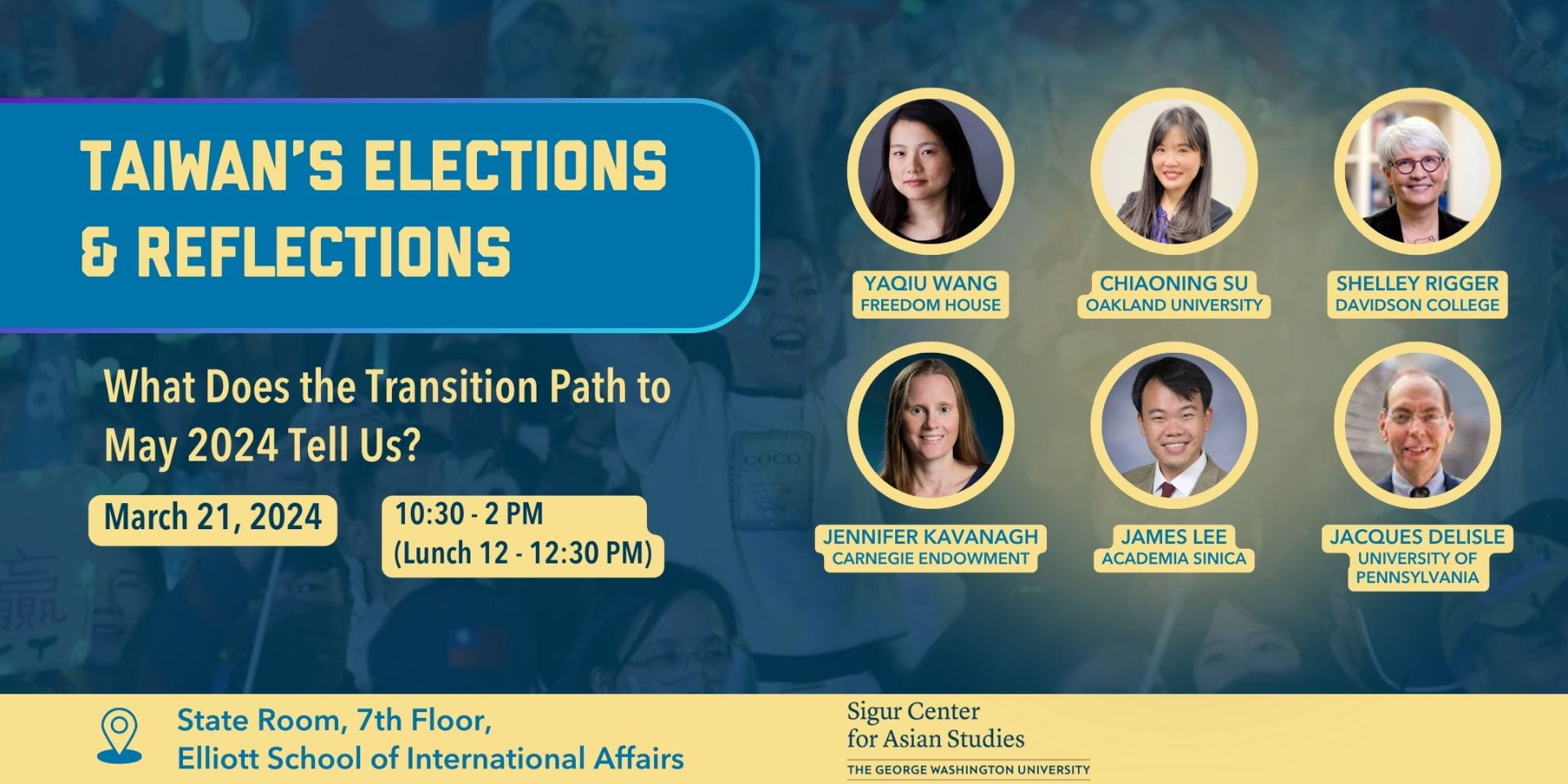
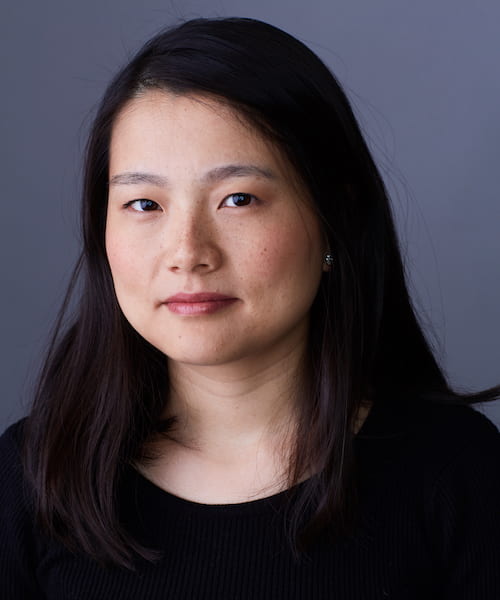
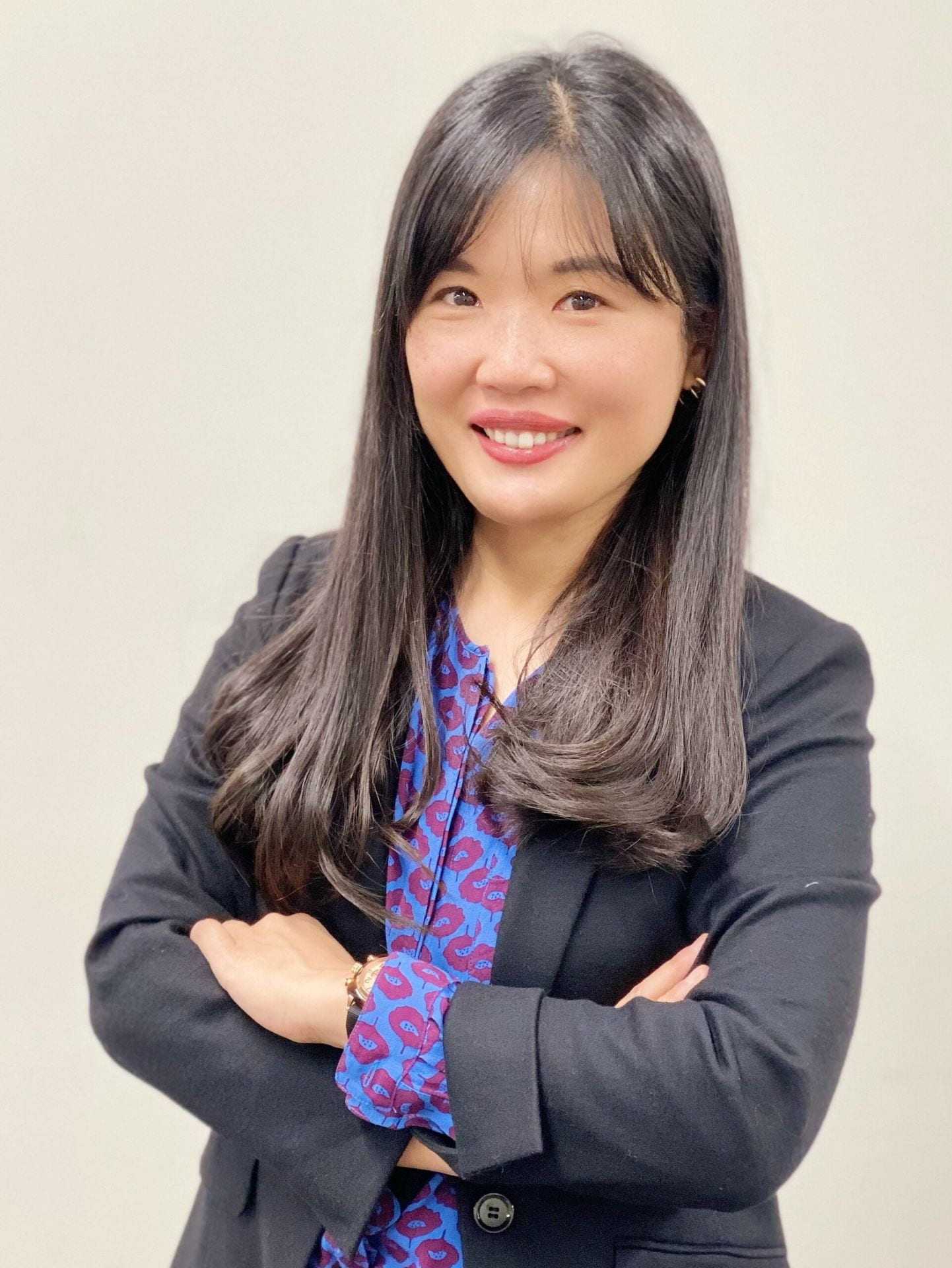
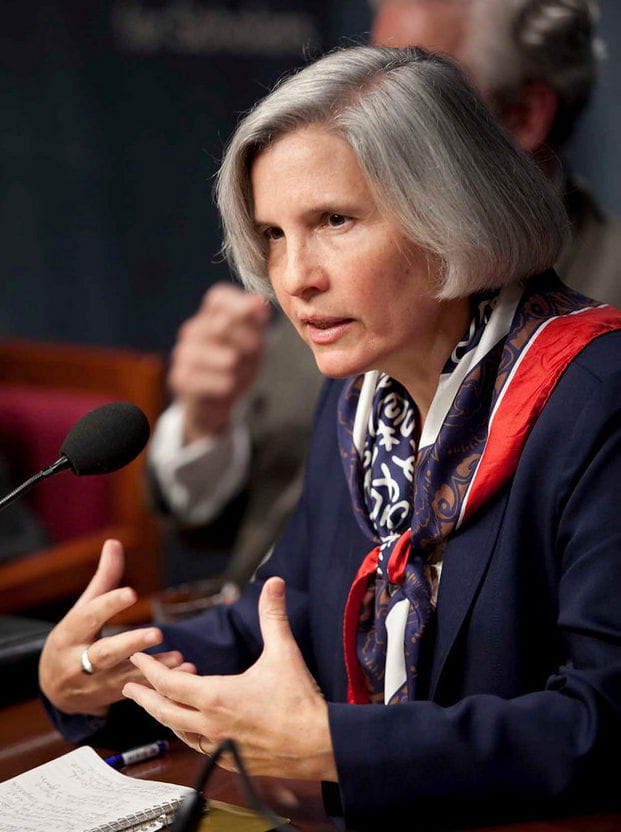
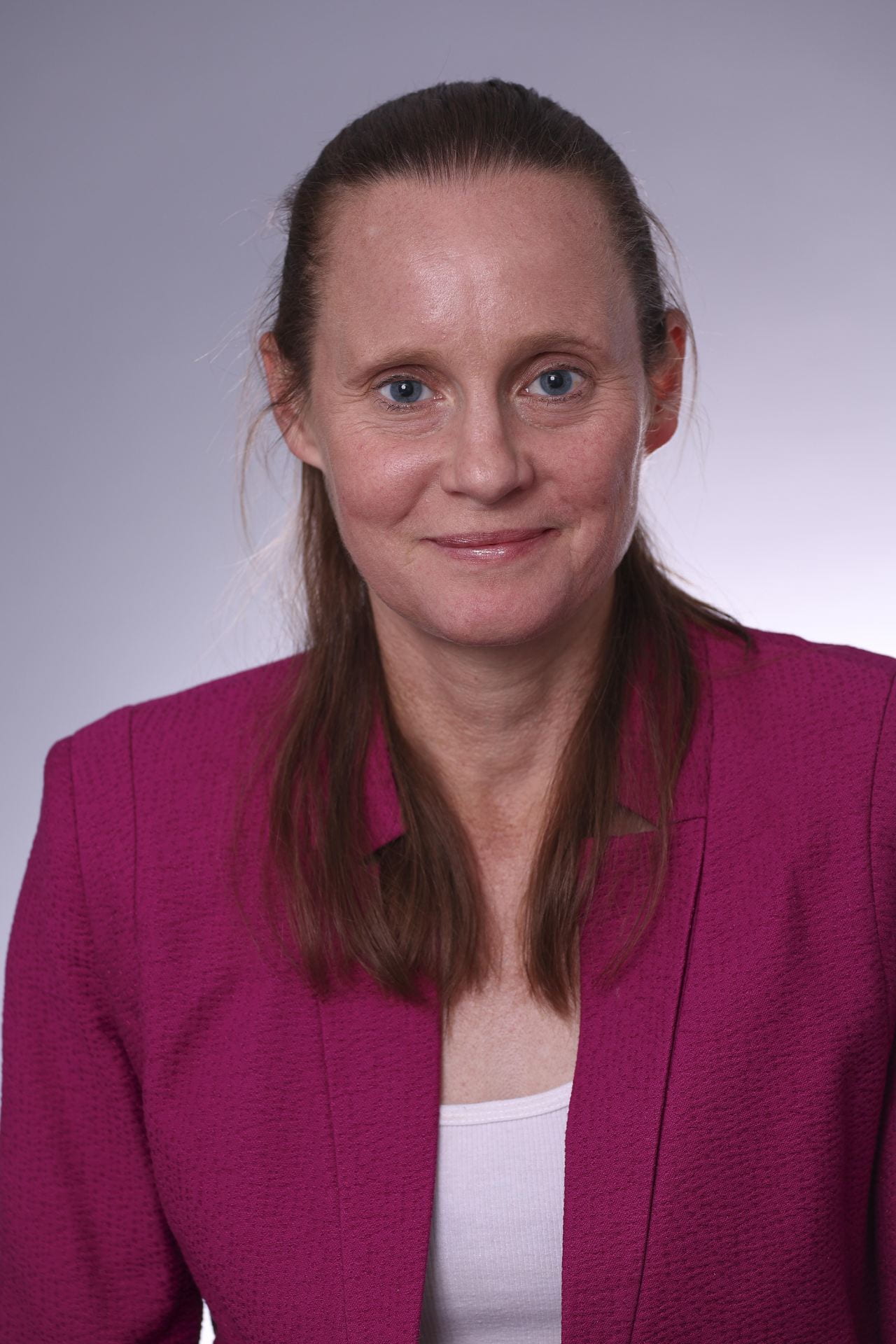
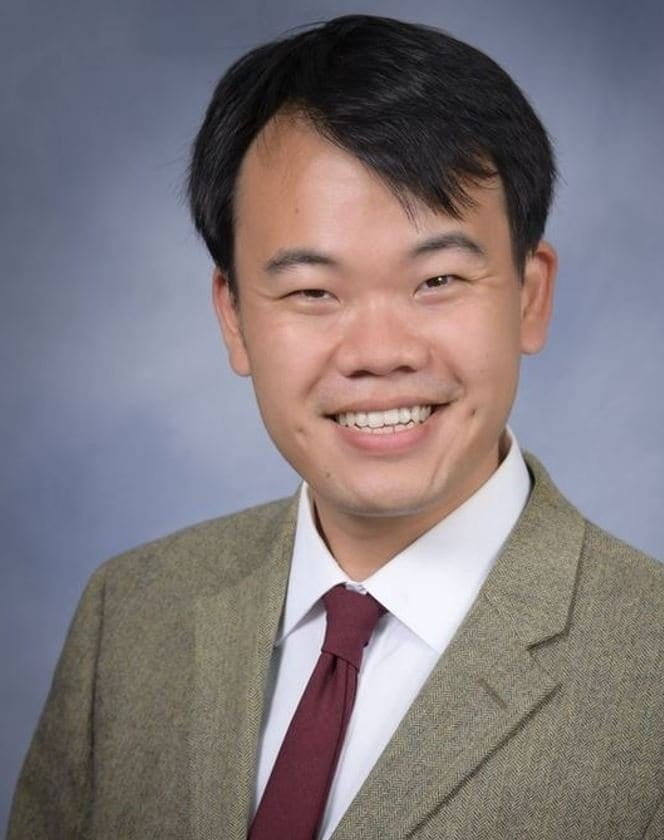

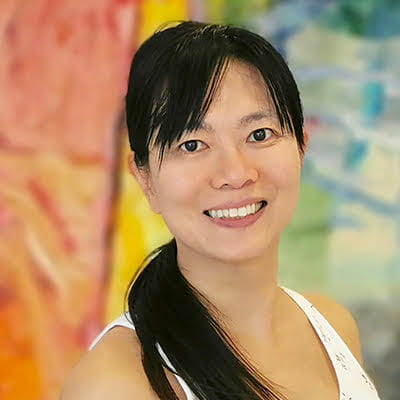
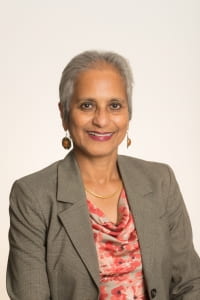


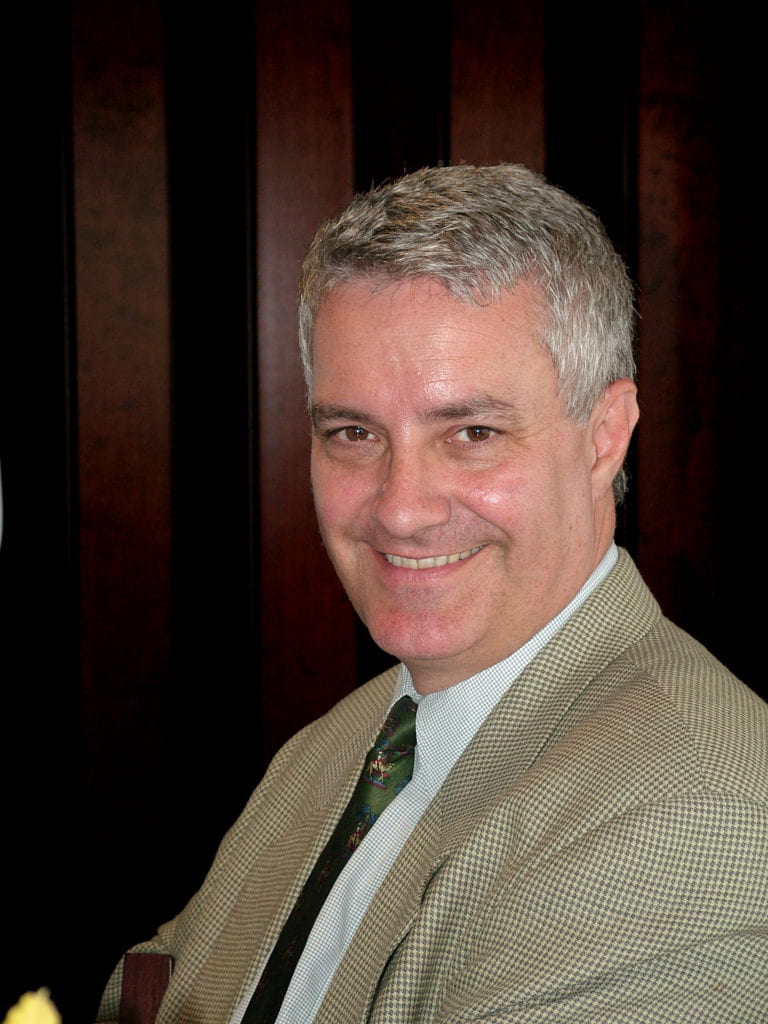
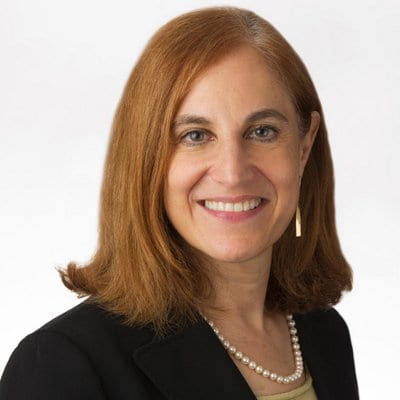

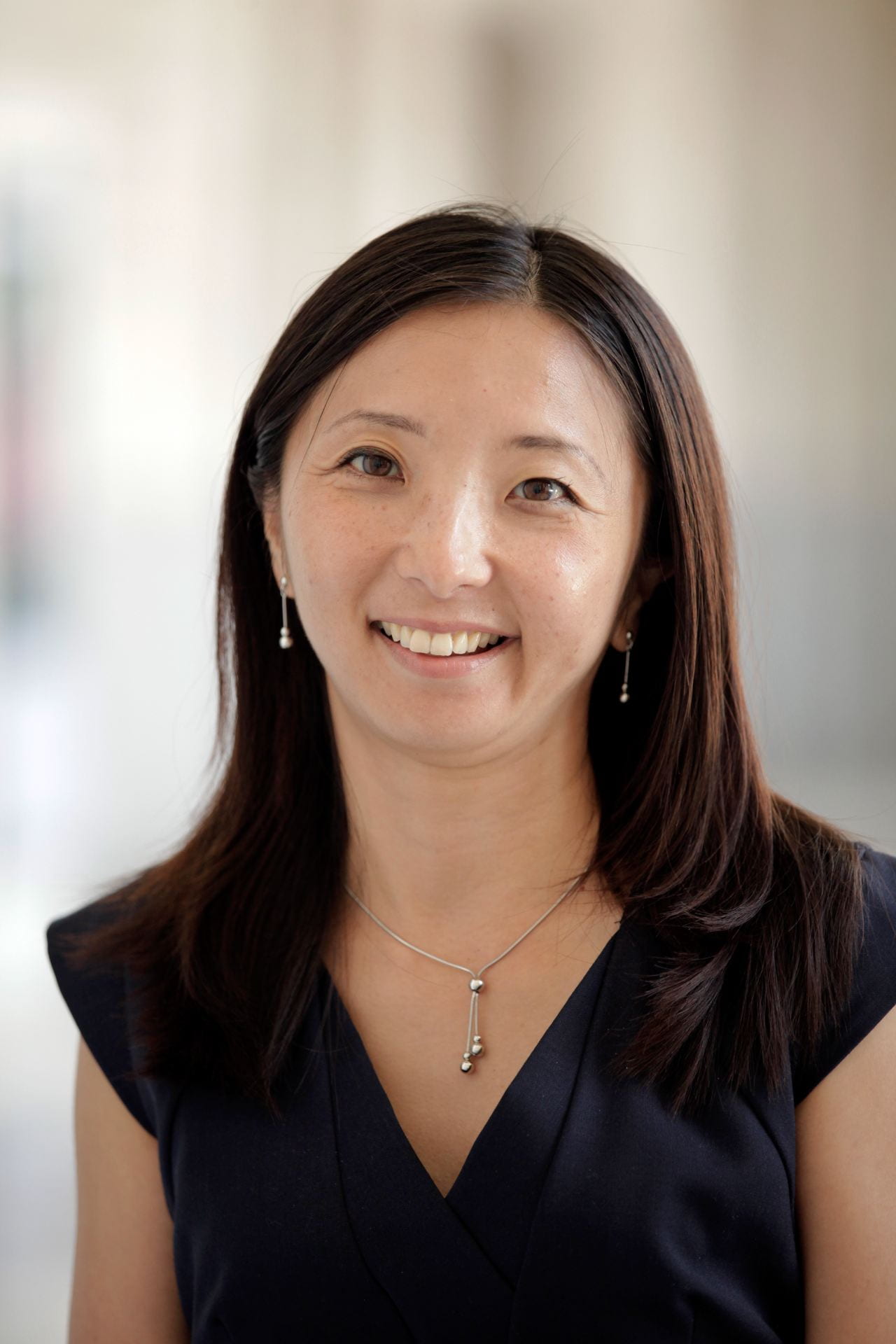
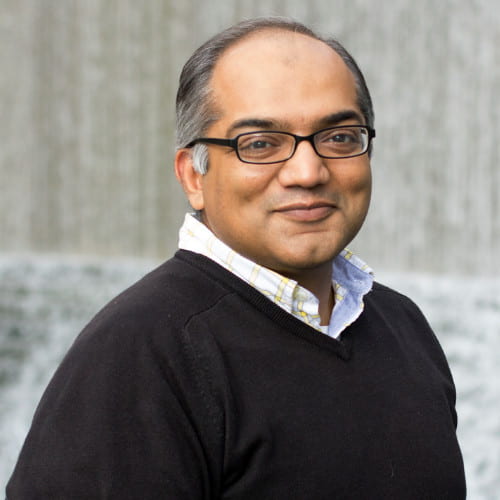
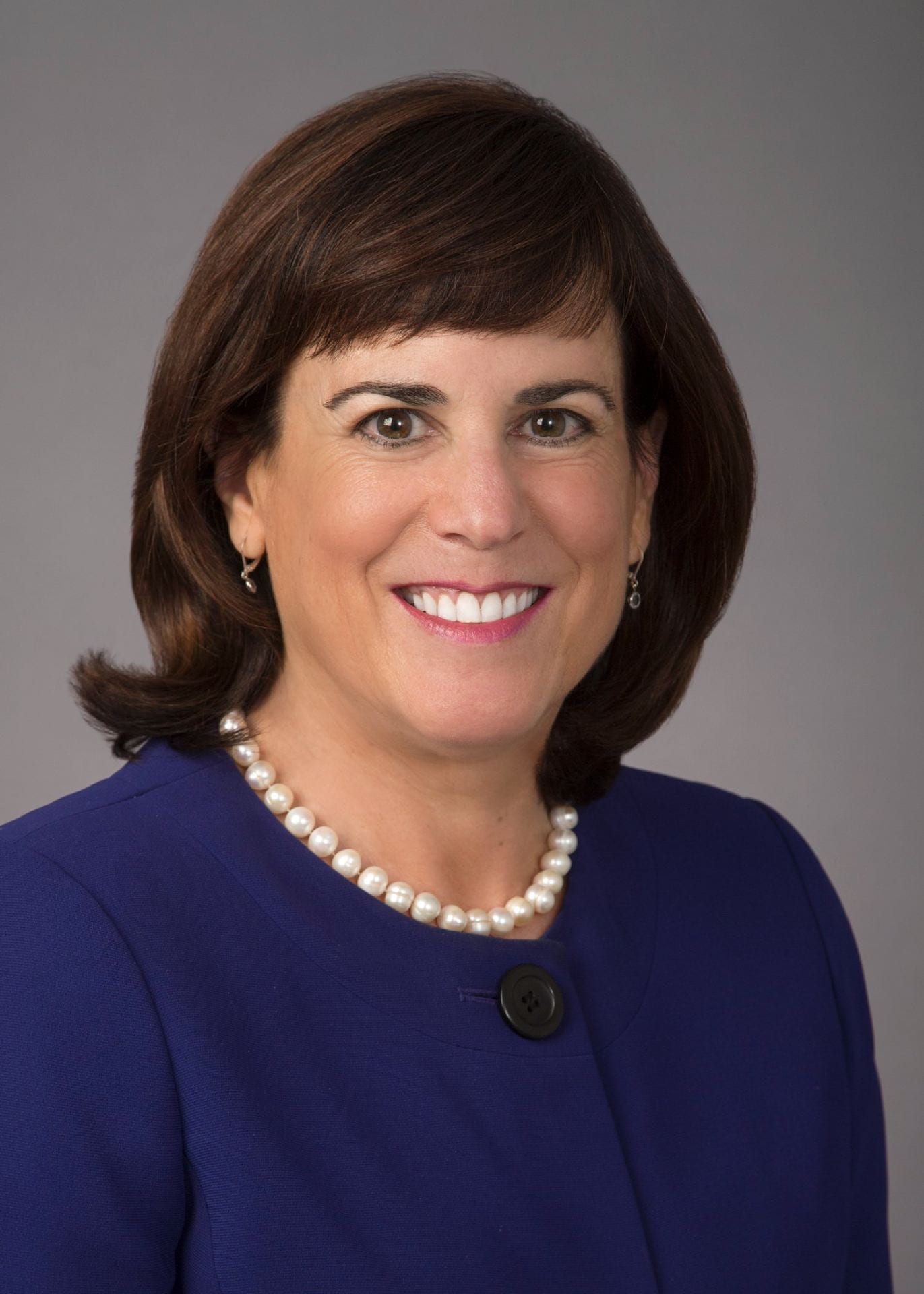

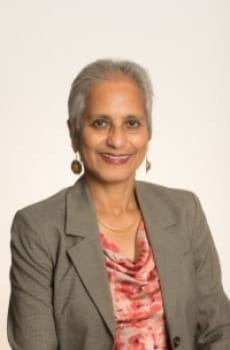



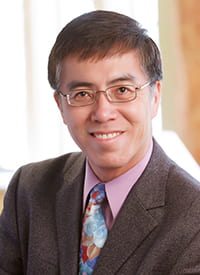
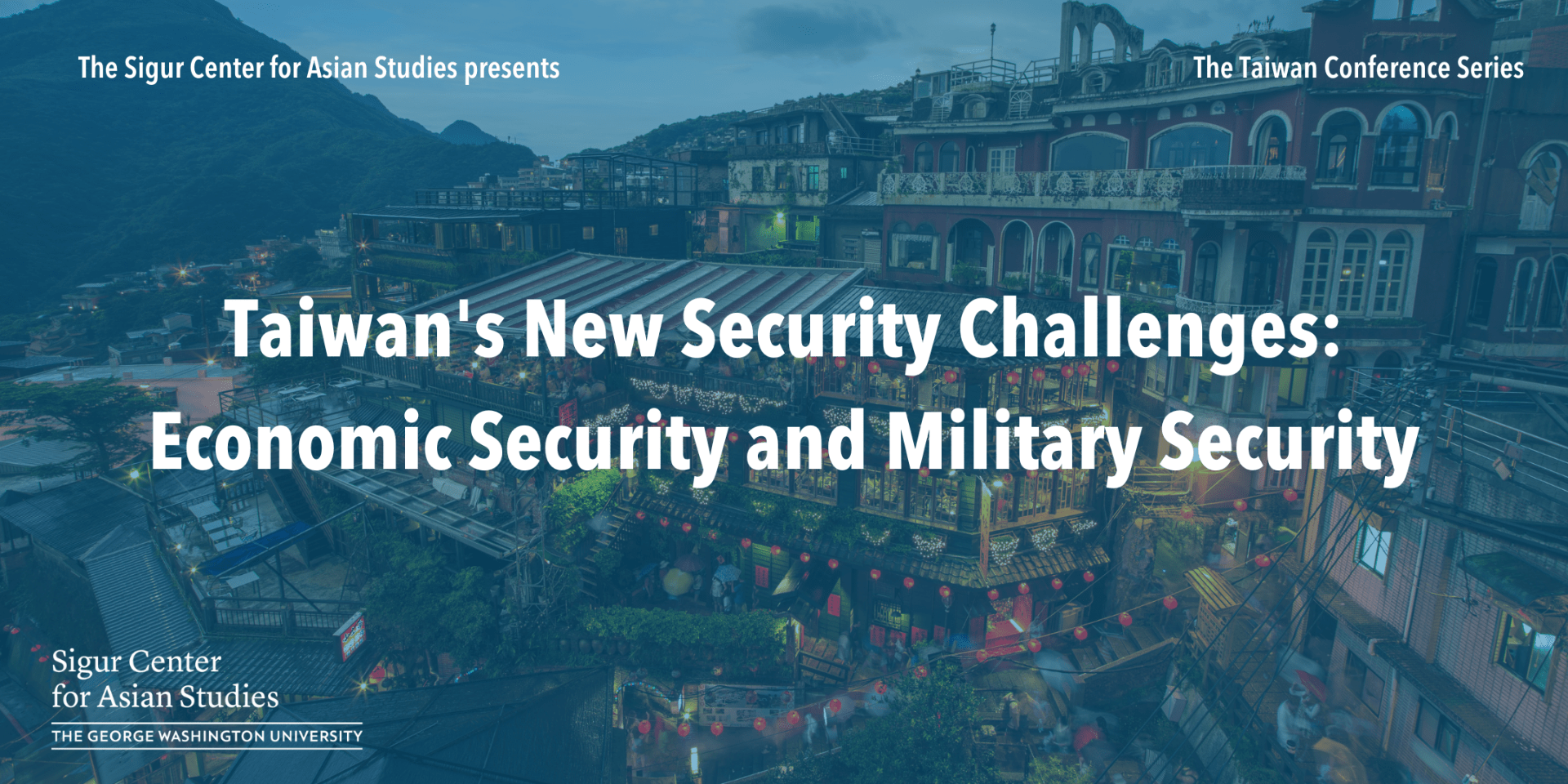


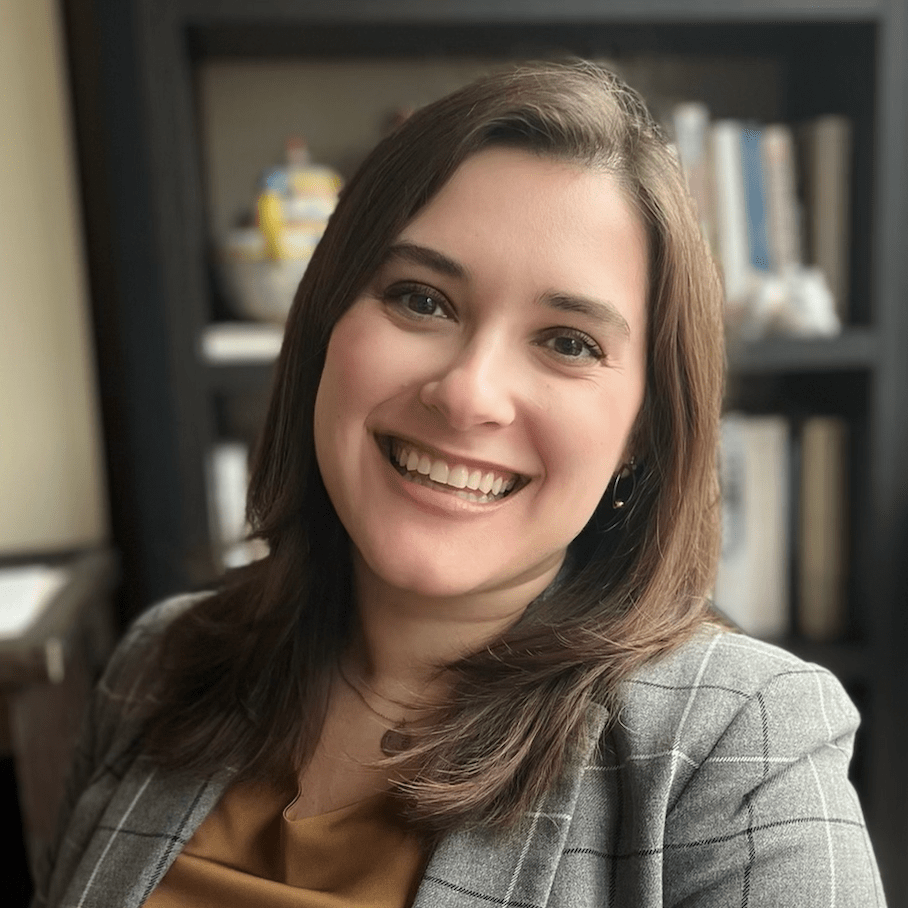
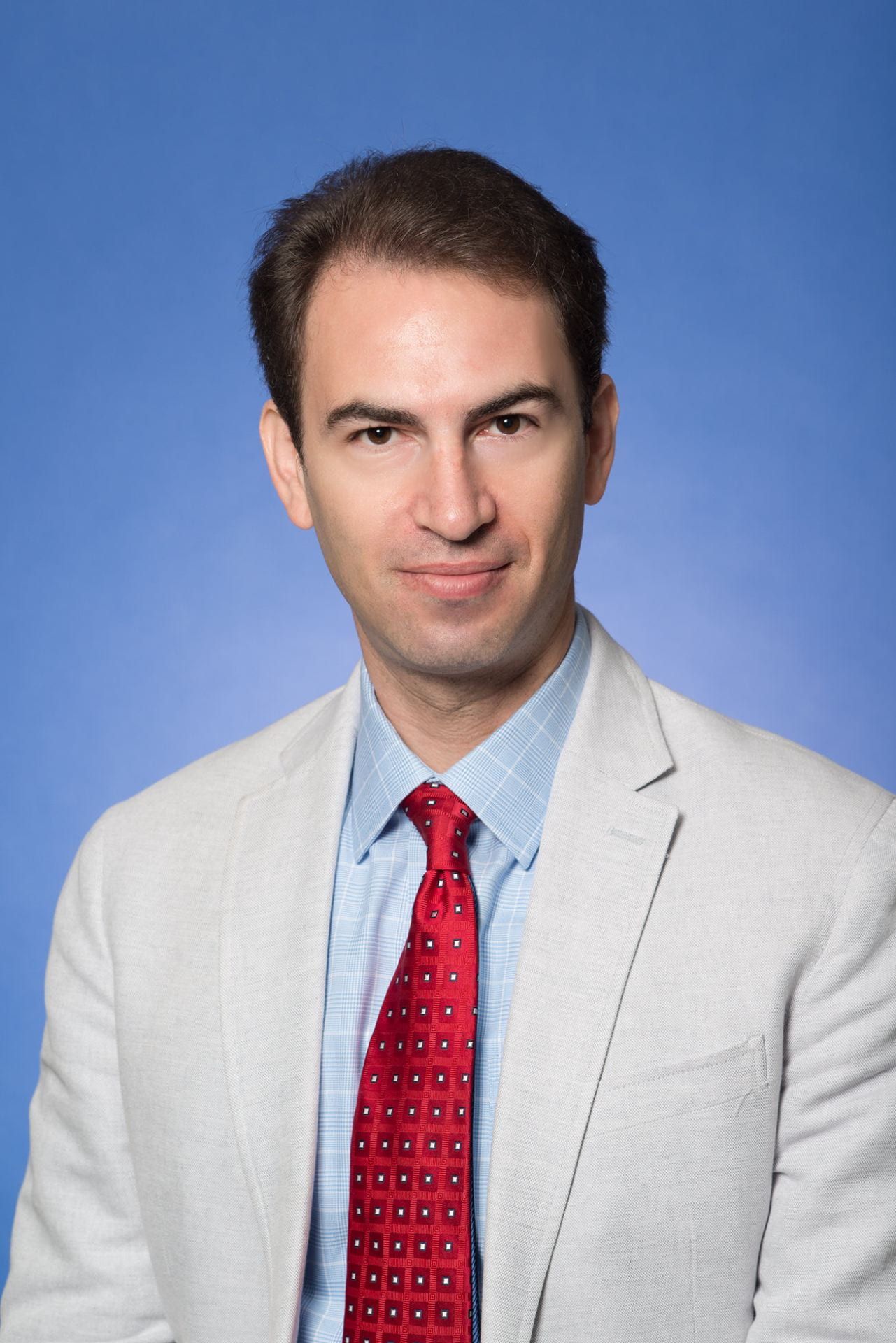
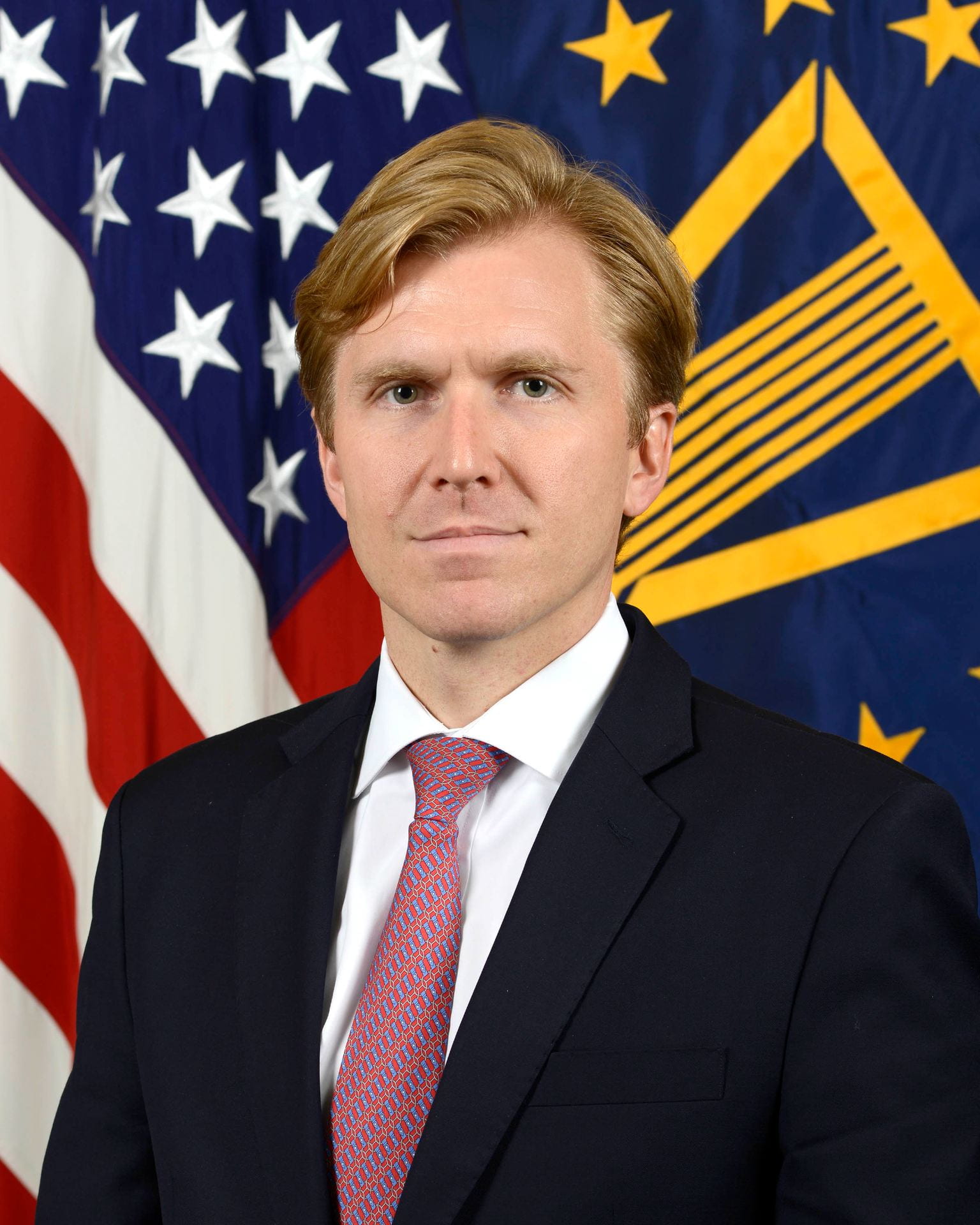

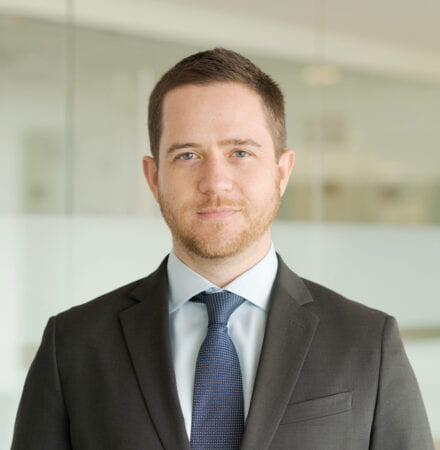



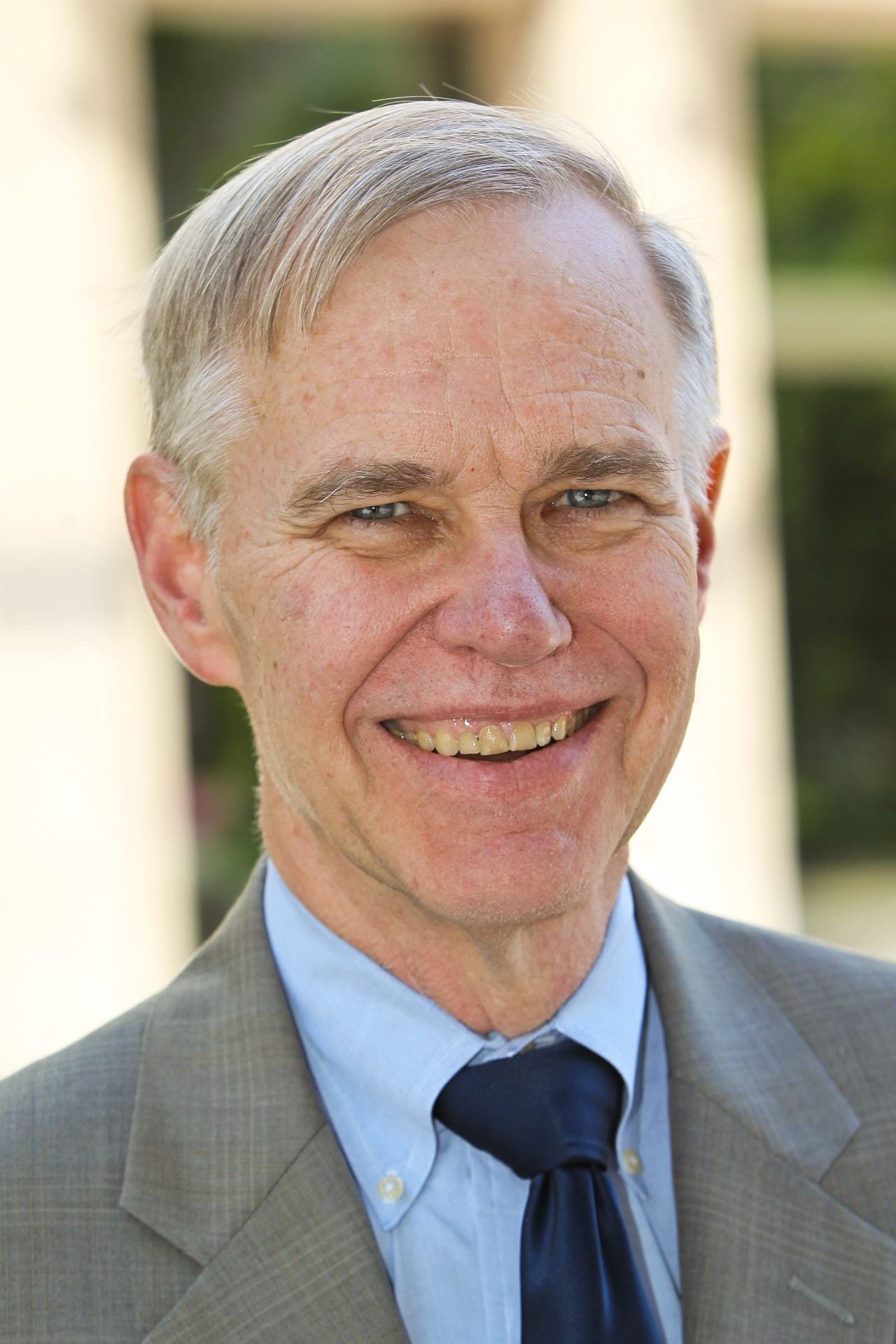

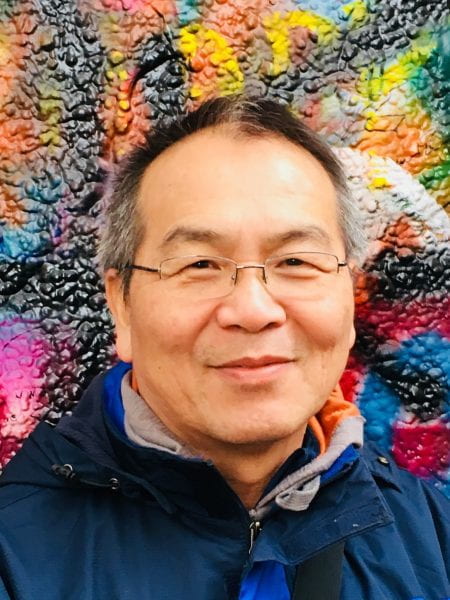



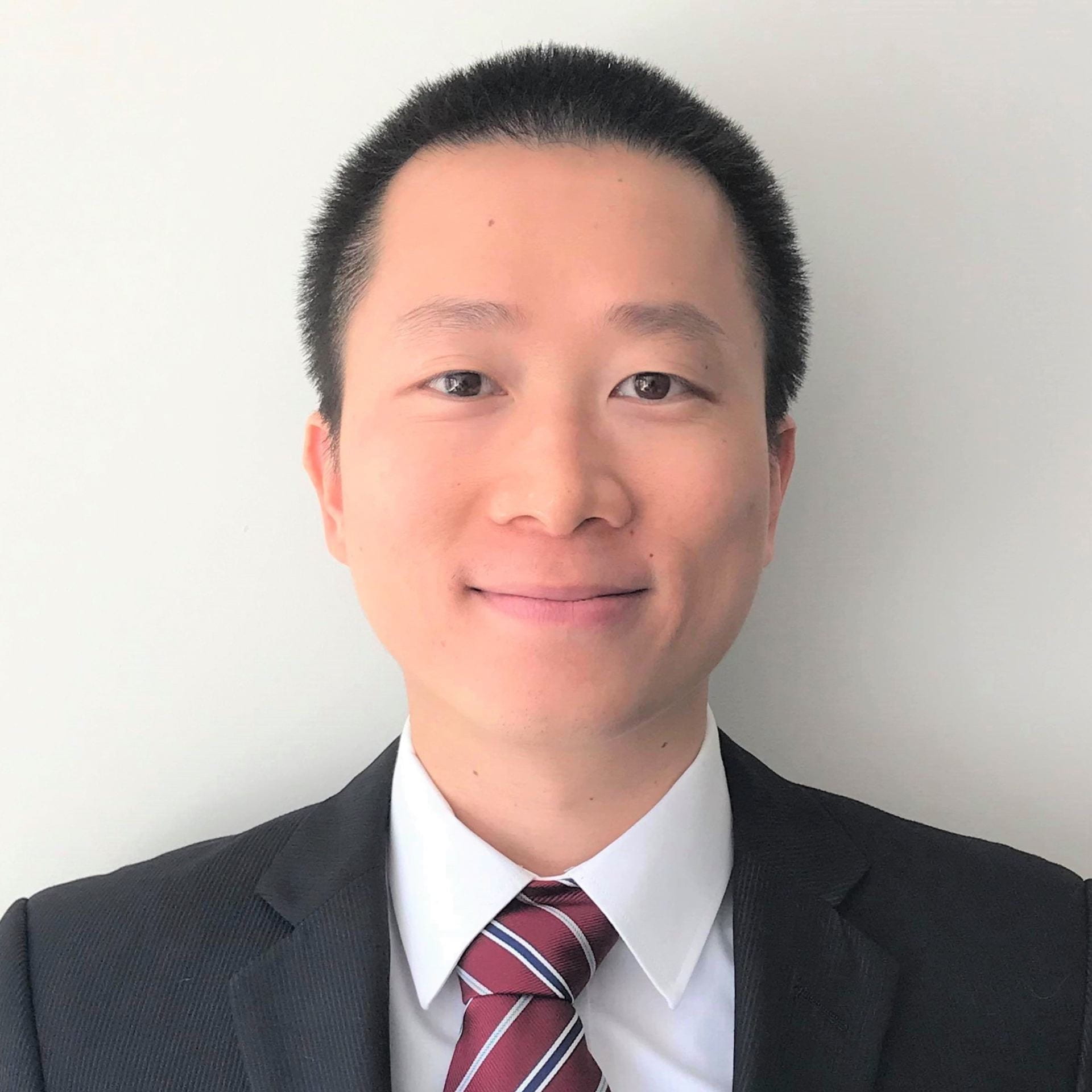


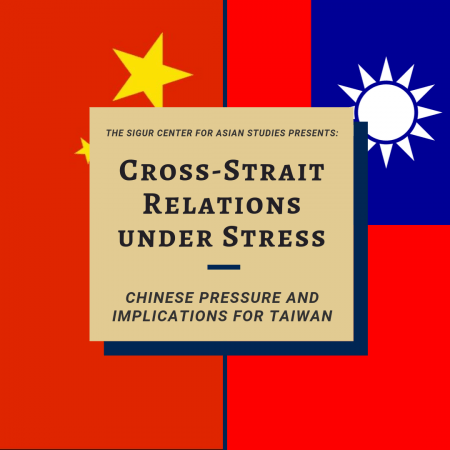
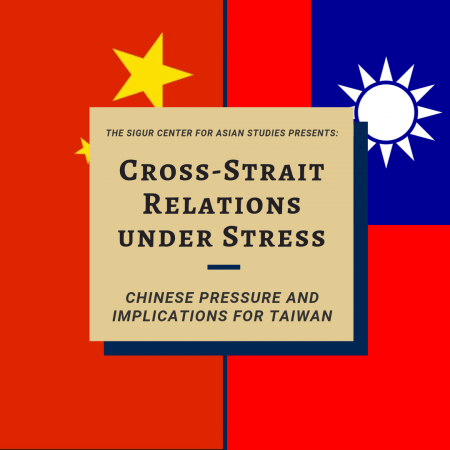

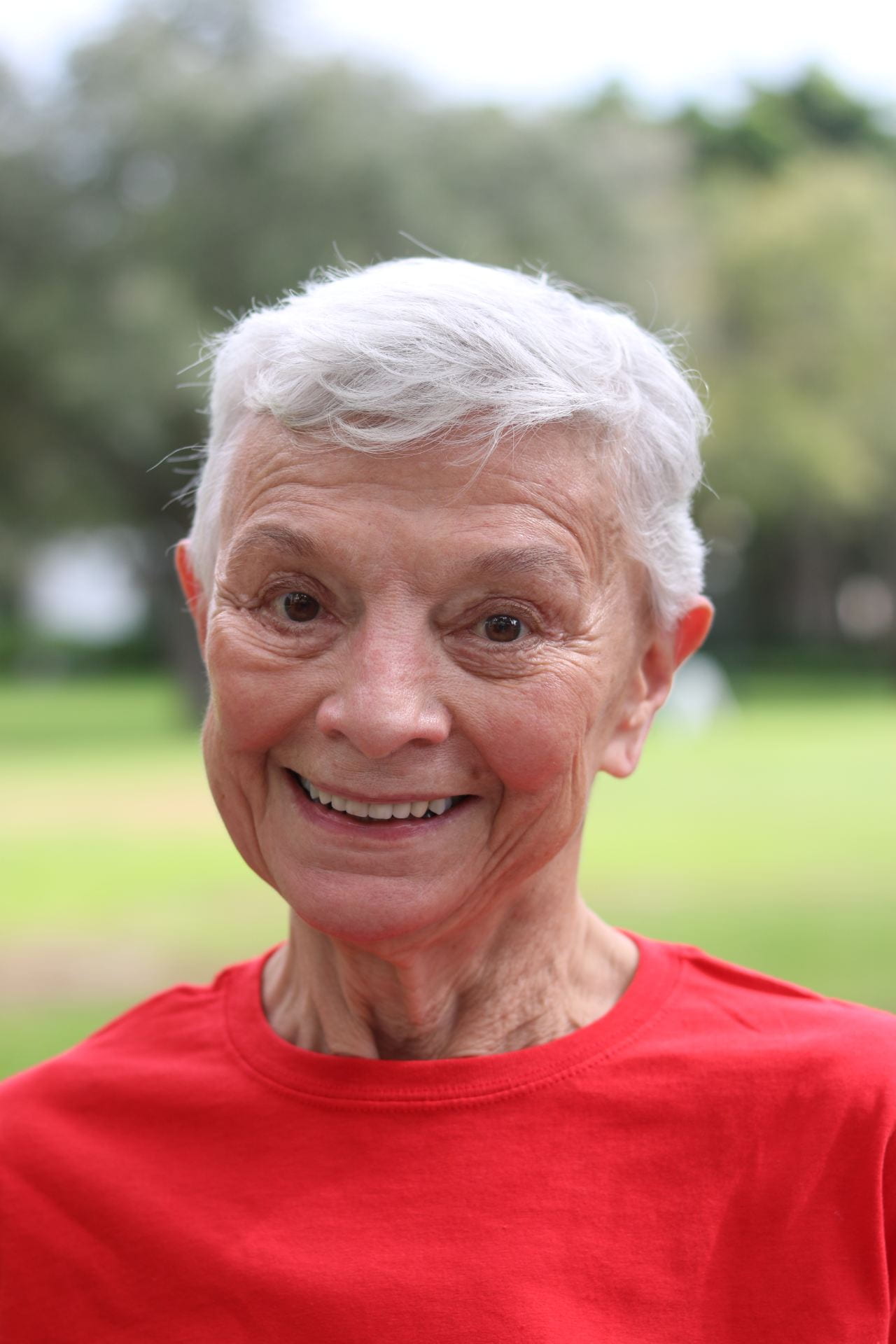
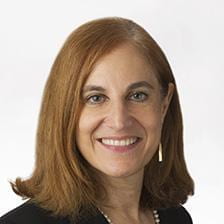
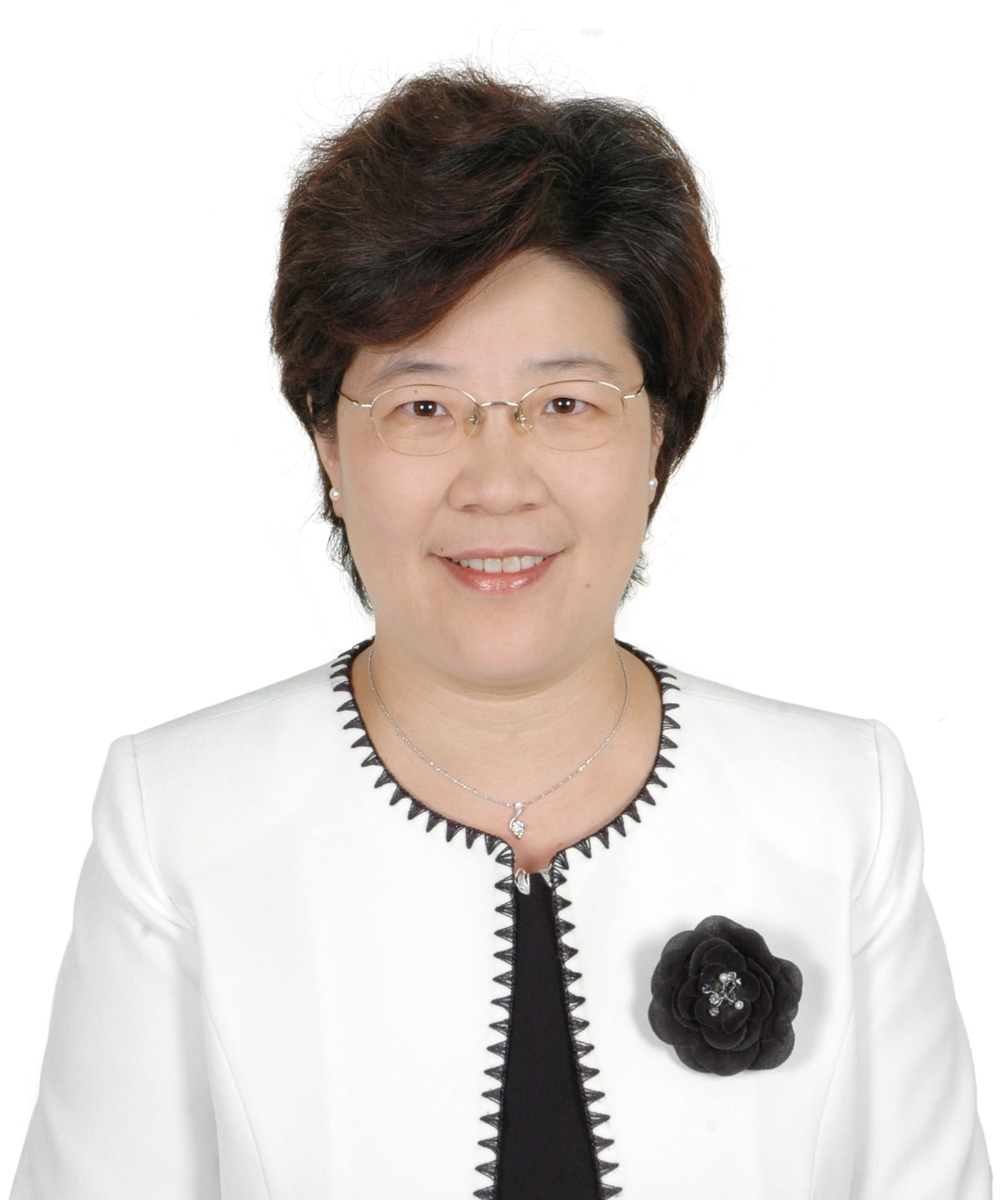


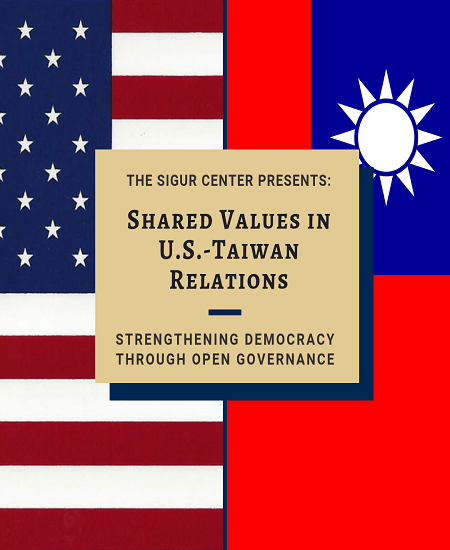
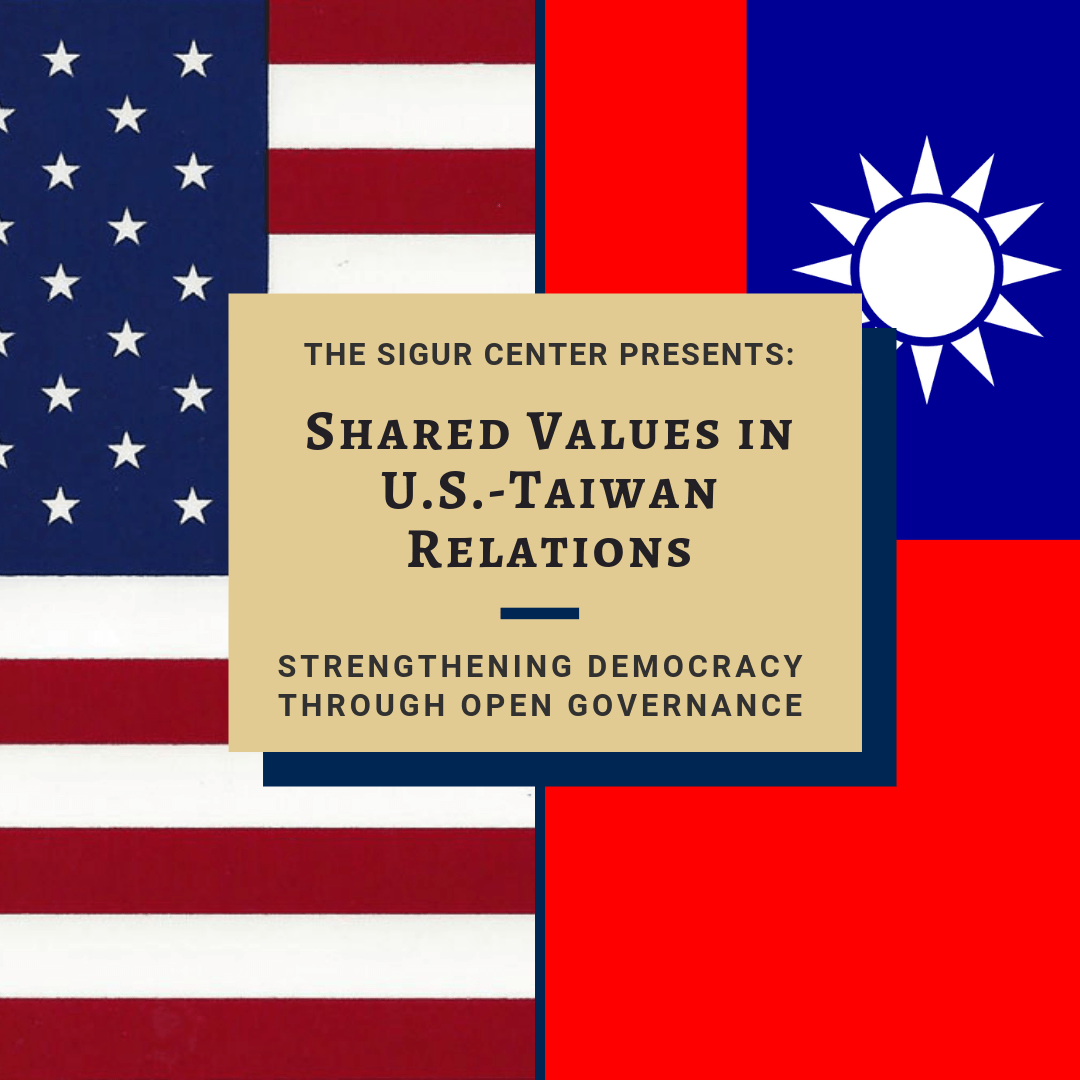
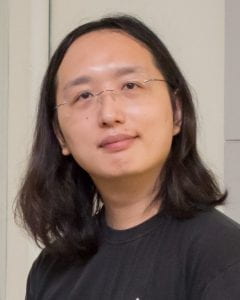
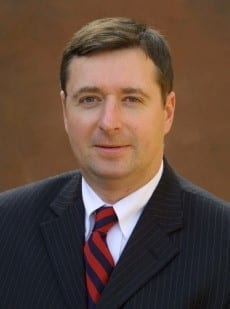
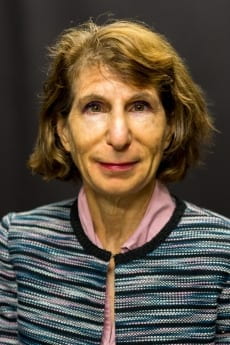
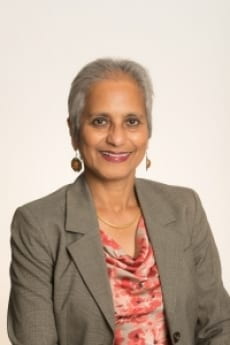
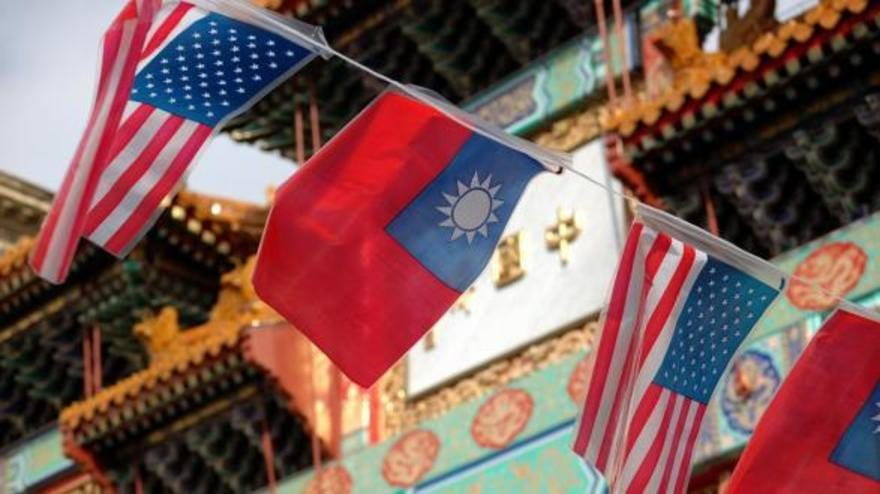

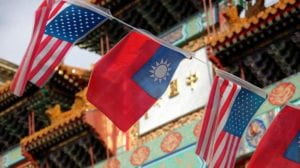



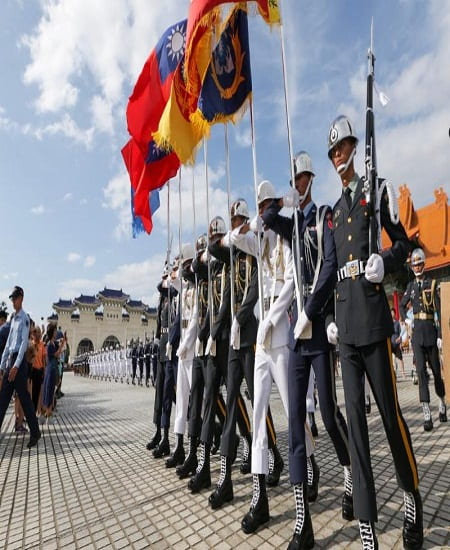
 Bonnie Glaser is a senior adviser for Asia and the director of the China Power Project at CSIS, where she works on issues related to Asia-Pacific security with a focus on Chinese foreign and security policy. Ms. Glaser has worked for more than three decades at the intersection of Asia-Pacific geopolitics and U.S. policy. Prior to joining CSIS, she served as a consultant for various U.S. government offices, including the Departments of Defense and State. Ms. Glaser received her B.A. in political science from Boston University and her M.A. with concentrations in international economics and Chinese studies from the Johns Hopkins School of Advanced International Studies.
Bonnie Glaser is a senior adviser for Asia and the director of the China Power Project at CSIS, where she works on issues related to Asia-Pacific security with a focus on Chinese foreign and security policy. Ms. Glaser has worked for more than three decades at the intersection of Asia-Pacific geopolitics and U.S. policy. Prior to joining CSIS, she served as a consultant for various U.S. government offices, including the Departments of Defense and State. Ms. Glaser received her B.A. in political science from Boston University and her M.A. with concentrations in international economics and Chinese studies from the Johns Hopkins School of Advanced International Studies.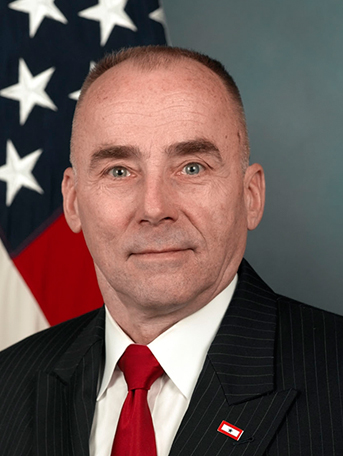 Lt. Gen. Wallace “Chip” Gregson, Jr. (ret.) most recently served as the Assistant Secretary of Defense, Asian and Pacific Security Affairs. Previously, he served as Chief Operating Officer for the United States Olympic Committee, then as an independent consultant before entering Government in 2009. LtGen. Gregson is a member of the Council on Foreign Relations; the U.S. Naval Institute; and the Marine Corps Association. He is a Trustee of the Marine Corps University Foundation. His civilian education includes a Bachelor’s degree from the U.S. Naval Academy, and Master’s degrees in Strategic Planning from the Naval War College, and International Relations from Salve Regina College.
Lt. Gen. Wallace “Chip” Gregson, Jr. (ret.) most recently served as the Assistant Secretary of Defense, Asian and Pacific Security Affairs. Previously, he served as Chief Operating Officer for the United States Olympic Committee, then as an independent consultant before entering Government in 2009. LtGen. Gregson is a member of the Council on Foreign Relations; the U.S. Naval Institute; and the Marine Corps Association. He is a Trustee of the Marine Corps University Foundation. His civilian education includes a Bachelor’s degree from the U.S. Naval Academy, and Master’s degrees in Strategic Planning from the Naval War College, and International Relations from Salve Regina College. Richard Fisher is a Senior Fellow with the International Assessment and Strategy Center. He has previously worked with the Center for Security Policy, Jamestown Foundation China Brief, U.S. House of Representatives Republican Policy Committee, and The Heritage Foundation. He is the author of China’s Military Modernization, Building forRegional and Global Reach (Praeger, 2008, Stanford University Press, 2010, Taiwan Ministry ofNational Defense translation, 2012). His articles have been published in Far Eastern Economic Review, Asian Wall Street Journal, The Washington Times, The Sankei Shimbun, World Airpower Review and Air Forces Monthly. He received a B.A. (Honors) in 1981 from Eisenhower College.
Richard Fisher is a Senior Fellow with the International Assessment and Strategy Center. He has previously worked with the Center for Security Policy, Jamestown Foundation China Brief, U.S. House of Representatives Republican Policy Committee, and The Heritage Foundation. He is the author of China’s Military Modernization, Building forRegional and Global Reach (Praeger, 2008, Stanford University Press, 2010, Taiwan Ministry ofNational Defense translation, 2012). His articles have been published in Far Eastern Economic Review, Asian Wall Street Journal, The Washington Times, The Sankei Shimbun, World Airpower Review and Air Forces Monthly. He received a B.A. (Honors) in 1981 from Eisenhower College.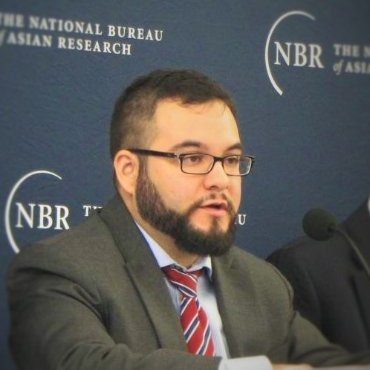 David Gitter is the Director of the Party Watch Initiative, a Project 2049 Institute program that tracks the latest activities of the Chinese Communist Party (CCP) and specializes in analysis of authoritative open source Chinese language materials. Prior to joining the Institute, he has worked in various analytical capacities at the Congressional Research Service (CRS), the Office of the Under Secretary of Defense for Policy (OUSDP), Project 2049 Institute, and the Center for Strategic and International Studies (CSIS) focusing on Chinese foreign policy and broader Asian security issues. Gitter received his MA in Asian Studies from the Elliott School of International Affairs at George Washington University.
David Gitter is the Director of the Party Watch Initiative, a Project 2049 Institute program that tracks the latest activities of the Chinese Communist Party (CCP) and specializes in analysis of authoritative open source Chinese language materials. Prior to joining the Institute, he has worked in various analytical capacities at the Congressional Research Service (CRS), the Office of the Under Secretary of Defense for Policy (OUSDP), Project 2049 Institute, and the Center for Strategic and International Studies (CSIS) focusing on Chinese foreign policy and broader Asian security issues. Gitter received his MA in Asian Studies from the Elliott School of International Affairs at George Washington University.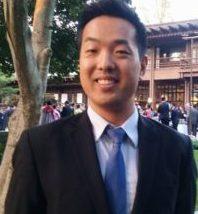 David An is currently the Senior Research Fellow at Global Taiwan Institute. Prior to joining GTI, David was a political-military affairs officer covering the East Asia region at the U.S. State Department from 2009 to 2014, and initiated the first Taiwan interagency political-military visit to the U.S., which have continued to occur annually. Prior to joining the State Department, he was a Fulbright scholar researching democracy in Taiwan and village elections in China. He received his M.A. from UCSD Graduate School of Global Policy and Strategy and his B.A. from UC Berkeley. He publishes and speaks widely on East Asian political and security matters.
David An is currently the Senior Research Fellow at Global Taiwan Institute. Prior to joining GTI, David was a political-military affairs officer covering the East Asia region at the U.S. State Department from 2009 to 2014, and initiated the first Taiwan interagency political-military visit to the U.S., which have continued to occur annually. Prior to joining the State Department, he was a Fulbright scholar researching democracy in Taiwan and village elections in China. He received his M.A. from UCSD Graduate School of Global Policy and Strategy and his B.A. from UC Berkeley. He publishes and speaks widely on East Asian political and security matters.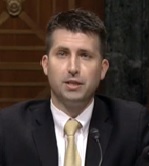 Ian Easton is a research fellow at the Project 2049 Institute, where he conducts research on defense and security issues in Asia. Previously, Ian worked as a China analyst at the Center for Naval Analyses (CNA) for two years. Prior to that, he lived in Taipei from 2005 to 2010. During his time in Taiwan, he worked as a translator for Island Technologies Inc. and the Foundation for Asia-Pacific Peace Studies. While in Taiwan, he also conducted research with the Asia Bureau Chief of Defense News. Ian holds an M.A. in China Studies from National Chengchi University in Taiwan and a B.A. in International Studies from the University of Illinois Urbana-Champaign.
Ian Easton is a research fellow at the Project 2049 Institute, where he conducts research on defense and security issues in Asia. Previously, Ian worked as a China analyst at the Center for Naval Analyses (CNA) for two years. Prior to that, he lived in Taipei from 2005 to 2010. During his time in Taiwan, he worked as a translator for Island Technologies Inc. and the Foundation for Asia-Pacific Peace Studies. While in Taiwan, he also conducted research with the Asia Bureau Chief of Defense News. Ian holds an M.A. in China Studies from National Chengchi University in Taiwan and a B.A. in International Studies from the University of Illinois Urbana-Champaign.